IIMB faculty write Thought Leadership articles in the media
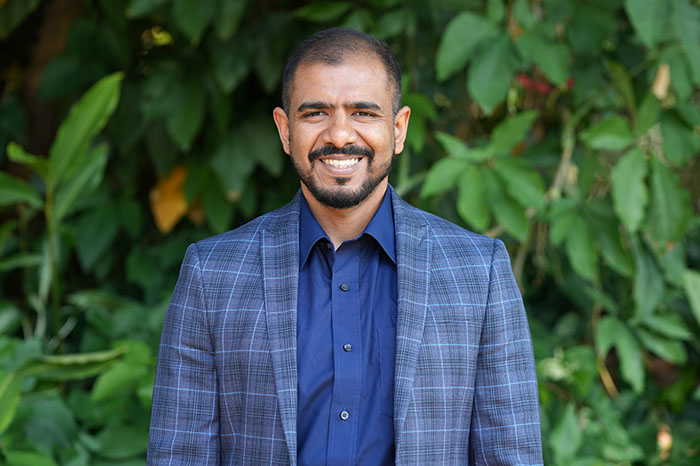
Subhabrata Majumdar
In the piece ‘How vacancies and relentless reshuffles are weakening India’s administrative backbone’ for Deccan Herald, Prof. Subhabrata Majumdar, Decision Sciences area, sheds light on a double bind facing India’s civil services: 1300 vacant IAS vacancies and a perpetual churn of bureaucratic reshuffles.
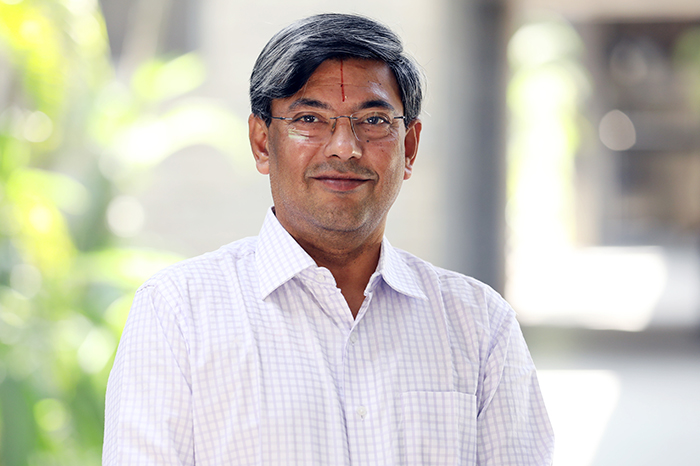
R Srinivasan
In a new piece for Forbes India, Prof. R. Srinivasan, Chairperson, Center for Digital Public Goods (CDPG) and faculty of Strategy; Chaitrali Bhoi, Research Associate, CDPG, and EPGP ’26 students Ruchi Chaurasiya and Abhishek Chavan introduce the – Sustainability Stack – a DPI-style blueprint to accelerate India’s sustainability transition.
Borrowing from India’s DPI successes, such as the Aadhaar and UPI, the sector-agnostic framework penned in the article ‘Sustainability stack: DPI architecture for India’s sustainability leap’ aims to unify fragmented economic, environmental, and social (EES) data across urban systems such as water, energy, waste, and land use.
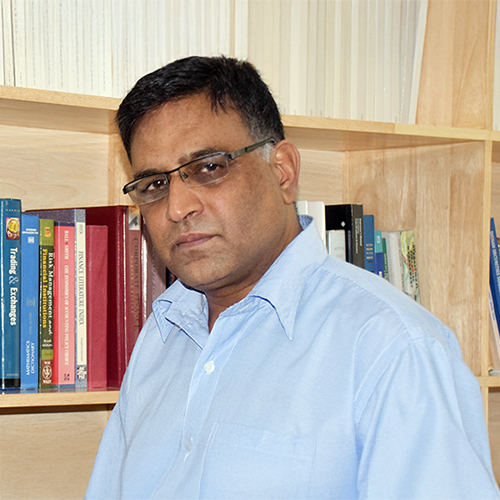
V. Ravi Anshuman
In a new Financial Express article, Prof. V. Ravi Anshuman, Finance & Accounting area, IIMB, and PGP ’08 Srijith Mohanan, JAGSoM, examine how India’s PPP model is evolving as infrastructure investment accelerates. With spending projected to reach $1.5 trillion over 2024–2029, ‘India’s PPP journey and the road ahead’ suggests that public-private partnerships can fuel growth and employment “only if risks are allocated and managed prudently”.
MS Sriram
Prof. M. S. Sriram, Professor of Public Policy at IIMB, launched his new column in Business Standard, revisiting the promise of Small Finance Banks a decade after their launch.
In this first piece, ‘Have SFBs really provided the breakthrough they were intended for?’, he argues that while SFBs have demonstrated resilience and solvency, the bigger question of whether they have meaningfully advanced financial inclusion, especially on savings, household deposits, and women’s inclusion, remains.
Jitamitra Desai
In an op-ed article for Deccan Herald, Prof. Jitamitra Desai, Decision Sciences area, examines the mounting tension between expansion and excellence in India’s higher education system.
In acknowledging the urgency of improving access, the article ‘Higher education: The quantity vs quality debate’ argues that “it is unreasonable to expect the top-tier institutions in the country to educate the vast swathe of students while simultaneously rising in global rankings”, and instead, proposes a deliberate “dual-branch” model for India.
MS Sriram
In his latest piece for Prajavani, Prof. M. S. Sriram, Public Policy area, examines the repeal of MGNREGA and its replacement with the Vikasita Bharat Guarantee for Employment and Livelihood Mission (GRAMEEN) (G RAM JI) Bill. ‘Analysis | 'Ram Ji' hits the right of the poor’ explores how the transition could be a shift in the design and framing of employment support and its implications on work as a right.

Deepti Ganapathy
In a co-authored piece titled ‘How MSMEs can come up with localised solutions towards sustainability’ for Forbes India, Prof. Deepti Ganapathy, Management Communication area, explains why sustainability for MSMEs must be understood through a local, contextual lens rather than through frameworks designed for large enterprises.

Deepti Ganapathy
In an article for The Hindu BusinessLine, Prof. Deepti Ganapathy, Management Communication area, argues that the real accelerant of a just climate transition may not be political will alone, but the deployment of digital technologies that offer “immense leverage to achieve resource efficiency and decarbonization”.
Her piece ‘Can technology act as a catalyst to a just climate transition?’ spotlights digital ecosystems that are powerful industry enablers towards a circular transition and offers a pragmatic path forward even as global negotiations stall.

R Srinivasan
In today’s ET BFSI, Prof. R Srinivasan, Strategy area and Chairperson, Center for Digital Public Goods (CDPG) and Balakrishnan Mahadevan, Post-doc fellow, CDPG, ask us to consider what it means to have built a scalable, inclusive, interoperable national payments infrastructure that has managed to make the cost of maintaining per transaction less than a tenth of a rupee.
‘NPCI and the Value of Frugality and Transparency in National Payments Infrastructure’ reveals that, with a lean, purpose-built architecture, NPCI’s entire capitalized systems base, supporting UPI, IMPS, RuPay, NETC and more, stands at just $203 million.
G. Sabarinathan
In ‘Book review: Secession of the successful by Sanjaya Baru’, Prof. G. Sabarinathan, former faculty of Finance & Accounting, IIMB, reinforces Baru’s view, as articulated in ‘Secession of the Successful’, that the current wave of migration “is perhaps much larger in terms of economic and institutional impact” than earlier movements. The data he cites in the Forbes India article on rising student outflows, record citizenship renunciations, and substantial Indian investment abroad sets up Baru’s argument that Indians have contributed to their host countries far more than they have to their home nation.
Rajeev R. Tripathi
When Karnataka chose not to outbid Andhra Pradesh for Google’s $15-billion 1-GW AI data centre, the decision was quickly labelled a “missed opportunity”. According to Prof. Rajeev R. Tripathi, however, true policy foresight often lies in restraint and not escalation.
Through the lens of game theory, ‘Incentive wars: Why walking away can be wiser’ for Deccan Herald argues that wisdom in governance may sometimes mean knowing when not to play.
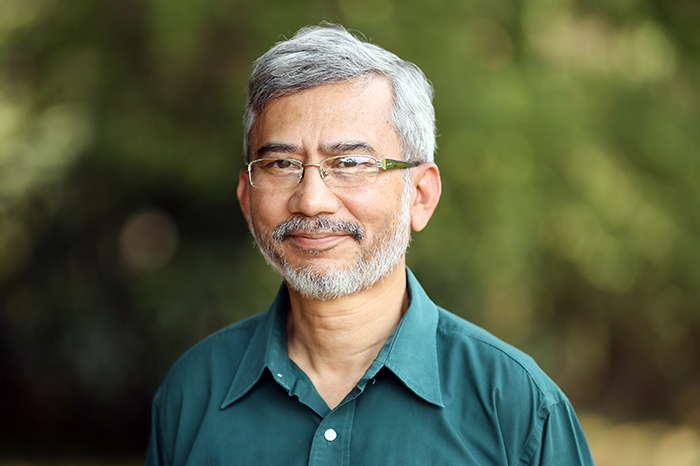
Rahul Dé
In their latest feature in the Financial Express, titled ‘Vibe Coding: Promises and Perils, ’ authors Rishabh Ohri, PGP 2019, and Prof. Rahul Dé, Information Systems area, IIM Bangalore, explore a revolutionary shift in software development where natural language and Generative AI enable users to ‘code by vibe’, translating ideas into working applications within hours. The article unpacks how this ‘code first, refine later’ philosophy is reshaping software creation for developers, entrepreneurs, and enterprises alike, while underscoring the urgent need for robust frameworks that balance creativity with control.
Nishant Kumar Verma
For start-ups in hardware, clean-tech, or hybrid systems navigating disruptive markets, funding rounds, product innovation, and customer acquisition make up the essential levers to market strategy. Prof. Nishant Kumar Verma, Production and Operations Management area, IIMB, and Shiril Saju, PhD student at IIMB, however, make the case for how supply chain design shapes start-up success in their article ‘Why start-ups should care about operations early on’ for Hindustan Times.

R Srinivasan
In their recent article for Forbes India, From Digital Reach to Digital Depth: Dissecting India’s UPI Usage by State and Merchant Category, Professor R. Srinivasan, Chairperson of the Centre for Digital Public Goods (CDPG) and Professor of Strategy at IIM Bangalore, and Dr. M. Balakrishnan, Postdoctoral Research Fellow at the Centre, unpack the story behind UPI’s headline numbers.
While UPI processed an unprecedented 18.4 billion transactions in June 2025 alone, the authors argue that true progress lies not just in scale, but in inclusivity and balanced development.

Deepti Ganapathy
In her latest contribution titled, ‘Plastics Crisis: What global treaty negotiations in Geneva mean for our future’ for Forbes India, Management Communication area faculty Prof. Deepti Ganapathy reflects on the urgent outcomes of the Global Plastics Treaty talks. She underscores how plastic production is projected to triple by 2050, with hidden health costs of $3.74 trillion annually, while also drawing attention to the exclusion of youth voices and the need for binding global accountability. This article provides powerful insights into how governments, businesses, and communities must move beyond rhetoric towards decisive action for people, planet, and future generations.
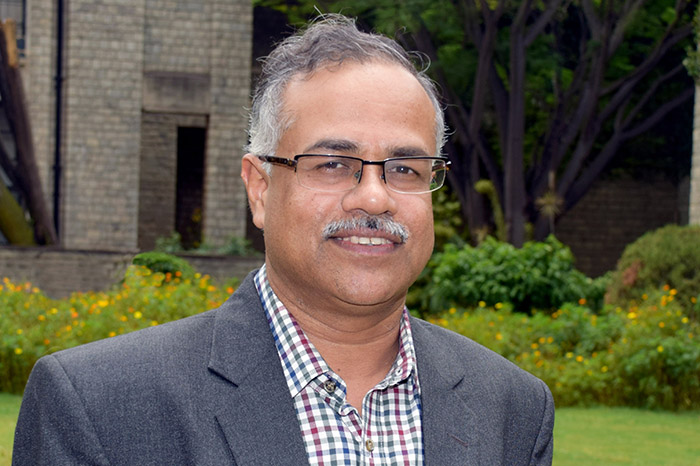
M Jayadev
For decades, India’s policymakers have sought to expand credit access to farmers, small businesses, and low-income households, but could not fully resolve the problem of information asymmetries associated with lending processes.
In his recent thought piece ‘Digitalisation of Bank Credit: India’s Move Towards Frictionless Credit’, for International Banker, Professor M. Jayadev, Finance & Accounting area, explores how India’s lending ecosystem is being reshaped by rapid innovation in the nation’s digital public infrastructure.
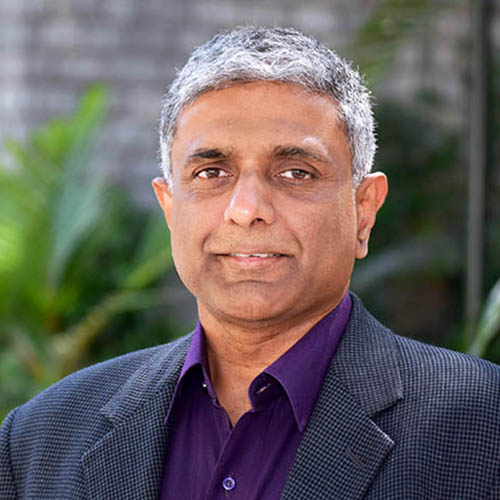
Shankar Venkatagiri
In his article ‘Can AI give doctors their time back?’ for Express Healthcare, Prof. Shankar Venkatagiri, Chairperson, Information Systems at IIMB, examines how AI can ease the burden on India’s overworked healthcare system. With just 4 lakh specialists serving a population of 140 crores, he notes, “Every patient encounter must be documented in detail… errors of omission can be deadly.”
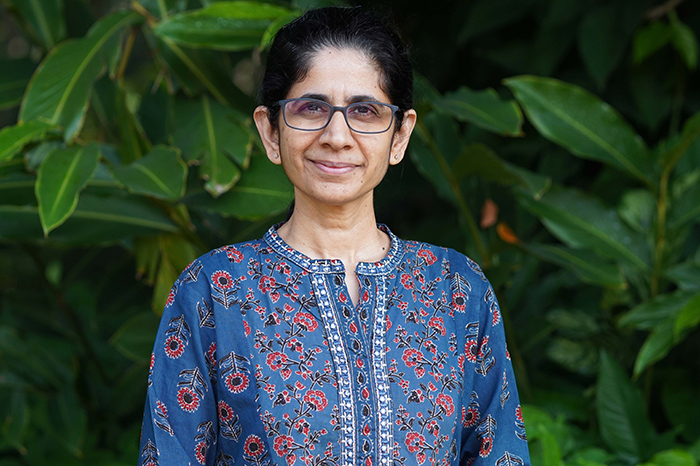
Mukta Kulkarni
Management education is undergoing a fundamental transformation shaped by how it is delivered, who it serves, and what it prepares learners for. Prof. Mukta Kulkarni, Dean, Programmes at IIMB, shares insights from the IIMB playbook and reflects on the shifts redefining the MBA in her recent piece, ‘We are reimagining MBA education’ for Careers360.
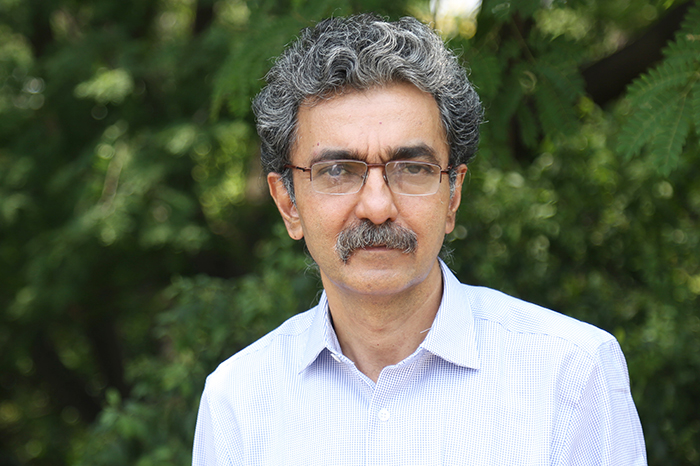
S Ramesh Kumar
In a marketplace where consumer attention is fleeting, metaphors remain a timeless tool for brands to cut through the clutter. ‘Metaphors Are Forever’, authored by Prof. Ramesh Kumar S, Marketing area, IIMB for ET’s Brand Equity, unpacks how metaphors transcend functional messaging to evoke emotions, cultural meaning, and lasting recall. Drawing on examples like LG’s unborn baby for ‘clean air’, Brooke Bond Taj Mahal’s link with classical music, and Red Bull’s “gives you wings,” the article shows how metaphors become emotional shortcuts that keep brands unforgettable.
In their latest article, ‘Private Care, Public Trust? Unpacking the Great Healthcare Divide in India,’ for Forbes India, Shreyansh Chaurasiya, PhD Candidate in the Finance & Accounting area at IIM Bangalore, and Pragati, IIMB alum and Assistant Professor at JAGSoM, examine why private healthcare continues to dominate patient preferences across all income groups in India. Drawing on national survey data and real-world scenarios, they unpack how perceptions of trust, service quality, infrastructure, and administrative efficiency outweigh cost considerations, even for low-income households. The piece also explores policy, technology, and community-led strategies that could help rebuild confidence in public healthcare and make quality treatment truly accessible to all.
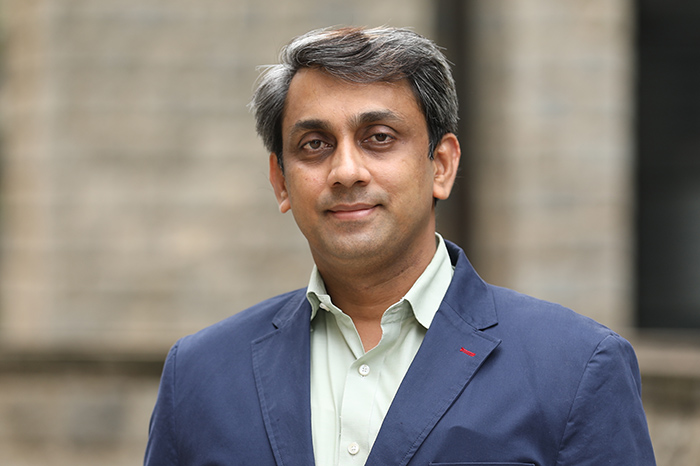
Allen P Ugargol
In his article ‘Cross-sectoral collaboration: Conceptualizing public-private models for elder care integration’ for Financial Express, Prof. Allen P Ugargol, Public Policy area, draws attention to India’s widening elder care gap, warning that the country’s health and social systems remain underprepared for the projected 315 million senior citizens by 2050.
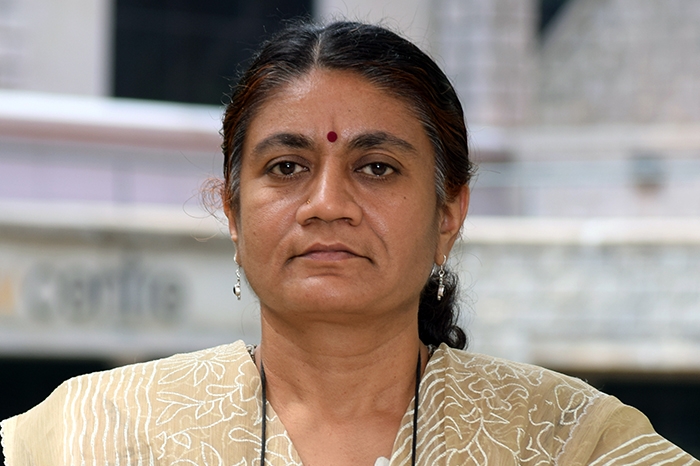
Rajalaxmi Kamath
In an article for Hindustan Times, Prof. Rajalaxmi Kamath, Public Policy area, IIMB, explains why India’s financial system must adapt to a new kind of crisis, green swan events. These climate-driven disruptions are no longer rare or hypothetical; they’re systemic, recurring, and unpredictable. With rising climate-related losses, traditional risk models and financial safeguards fall short. Drawing from India’s vulnerabilities and Bangladesh’s policy innovations, the article lays out a roadmap for climate-resilient financial inclusion, calling for green bonds, stress tests, and coordinated regulation to safeguard the most affected populations.

R Srinivasan
A recent article for Business Standard, co-authored by Prof. R. Srinivasan, Strategy area, IIMB, with Prof. Amar Saxena, Ratan Tata Maharashtra State Skills University, explores how digital technology is bringing transparency and efficiency to India’s NPA (Non-Performing Asset) disposal process. Despite the regulatory frameworks of SARFAESI and IBC, inefficiencies remain due to high transaction costs, limited trust, and information asymmetry. The authors highlight how platforms are reducing NPA disposal time, increasing bidder participation, and unlocking value for both banks and buyers, paving the way for a more accessible and liquid distressed asset market.

R Srinivasan
In a piece for Forbes India, Prof. R. Srinivasan, Strategy area, and Balakrishnan M., Post Doctoral Research Fellow, Centre for Digital Public Goods, IIMB, ask: what’s next for QR-based payments?
‘UPI: The Imperative for a unified QR ecosystem’ reflects on a growing structural fault line in India’s digital payments ecosystem. While UPI QRs are interoperable within the UPI ecosystem across banks, prepaid issuers, and apps, they remain incompatible with other major payment networks like Visa and Mastercard. Its near-ubiquitous use and exclusion of major payment networks risks introducing potential points of failure.
Sankarshan Basu
In their article ‘Why crude oil reserves count’, for the Deccan Herald, co-authors Prof. Sankarshan Basu, Finance & Accounting area, IIMB, and Prabina Rajib, Director, Birla Institute of Management Technology, draw parallels between personal financial planning and national preparedness, arguing that just as individuals save for the future, nations must build safeguards, especially in energy security, against unpredictable geopolitical and economic disruptions.

R Srinivasan
As India marks a decade of Digital India, Prof. R. Srinivasan, Strategy area and Chairperson of the Centre for Digital Public Goods at IIMB, co-authors a timely piece, ‘Decoding digital public infrastructure for India’s future’, for The Sunday Guardian, on the growing capability of India’s open, interoperable, and citizen-centric DPI model.
Rajeev R. Tripathi
Prof. Rajeev R. Tripathi, faculty in the Production & Operations Management area and Chairperson of the Supply Chain Management Centre, writes on India’s urgent need for stronger and unrelenting capacity in the global intellectual property (IP) regime, in a co-authored piece for Deccan Herald. Drawing on game theory, ‘The IP game India must learn to win’ illustrates how India’s traditional crafts are repeatedly exposed to appropriation by global brands, often without legal consequence.

R Srinivasan
In an article for Forbes India, ‘From UPI to ONDC: The role of centralised orchestration in DPI success’, Prof. R. Srinivasan, Strategy area, and Dr. Balakrishnan M, Post Doctoral Research Fellow, Centre for Digital Public Goods, IIMB, explore why some of India’s Digital Public Infrastructure (DPI) systems like Aadhaar and UPI have scaled massively, while others like ONDC, DigiLocker, and AA remain under-leveraged. They presented a roadmap for DPI success, not just through technology, but through orchestration, trust, and value creation, offering key insights for policymakers, technologists, and public leaders shaping India’s digital future.
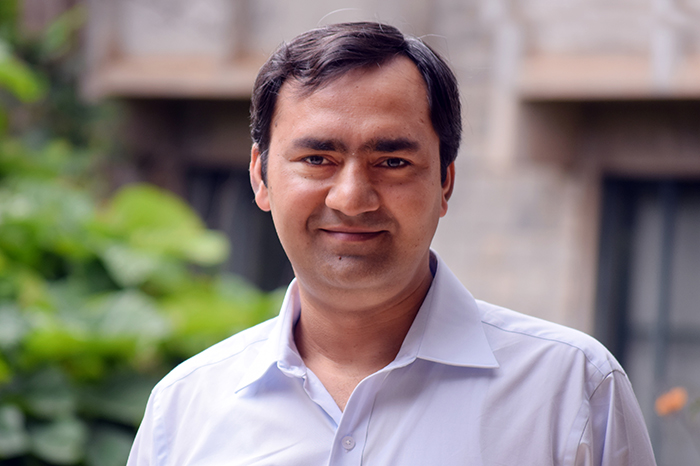
Amar Sapra
In his latest for thought piece, ‘From Festivals to Stadiums: The Hard Lessons Behind India’s Deadly Stampedes,’ for Forbes India, Prof. Amar Sapra from the Production and Operations Management area at IIMB, offers a sobering analysis of recent crowd-related tragedies across India: from Kumbh Mela to railway stations and cricket stadiums. Using real-world examples, he explains how crowd psychology, movement planning, and timely communication can prevent panic and ends with a clear CTA for all stakeholders to treat crowd safety as a shared responsibility, not an afterthought.
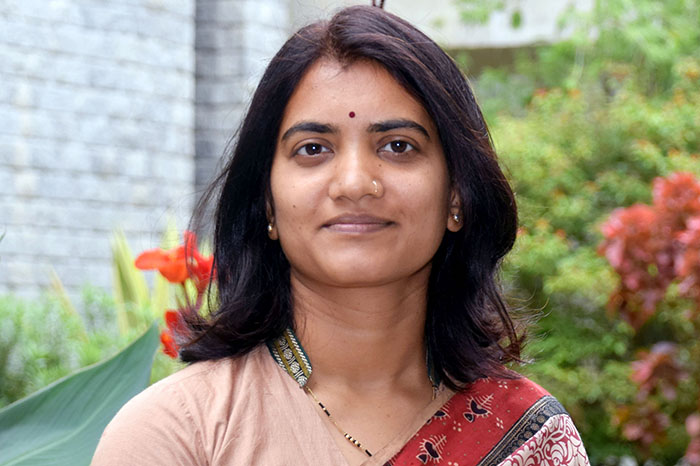
Sreelata Jonnalageddan
In the article titled ‘Financing the Electric Vehicle Revolution: Addressing challenges in India’ for Economic Times Auto, Prof. Sreelata Jonnalagedda, faculty in the Marketing area, IIMB, and co-author Satyajit Roy, PhD scholar, Production and Operations Management area, IIMB, delve into the financial ecosystem surrounding India’s EV transition. They examine the multifaceted barriers slowing down EV adoption from high upfront costs and uncertain resale value to limited financing options and lack of risk models for financiers.

Deepti Ganapathy
In her latest contribution titled, ‘No more Plastic Please’ for Hindustan Times, Management Communication area faculty Prof. Deepti Ganapathy, explores and highlights nation-wide campaign to promote eco-friendly alternatives and to the urgent need to phase-out the single use plastic, initiatives by Government of India on this year’s World Environment Day. This article offers valuable insights on how environmental responsibility, policy advocacy and systematic education reforms can together steer us towards a plastic-free, sustainable future.

Sreelata Jonnalageddan
‘Why Leasing Dominates India’s Commercial EV Market’, authored by Prof. Sreelata Jonnalagedda, Marketing area, and PhD scholar Satyajit Roy, Production and Operations Management area, for Autocar Professional, lays out the complex value chain dynamics, financial risks, and ecosystem gaps driving this shift. The article assesses why leasing has become the preferred ownership model and how current adoption figures may be concealing deeper vulnerabilities.
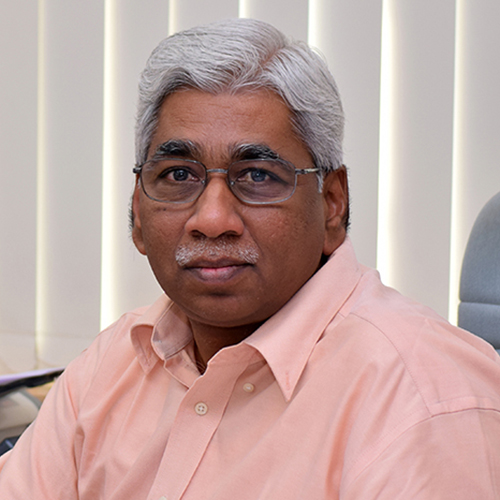
Rajendra K Bandi
The rapid acceleration in the abilities of artificial intelligence has led us to tread into territory that is yet to be mapped, observes Prof. Rajendra K Bandi, Information Systems area, in his latest piece for Deccan Herald.
In ‘The Hidden Cost of AI: Your Face, Your Data’, he examines the proliferation of derivative applications, the rise of third-party developers, the machinery of surveillance capitalism, and the urgent need for innovative regulation to address these unprecedented ethical and governance dilemmas.

R Srinivasan
‘Transforming B2B logistics through digital platforms’ for Manufacturing Today, by Prof. R Srinivasan, Strategy area, and PhD scholar Rashi Agarwala, examines how the integration of digital platforms and DPI is reshaping the structure and governance of B2B logistics with a focus on RoaDo, a B2B logistics management digital platform based in India.

S Ramesh Kumar
In this latest contribution titled, ‘How to profit from consumer trade-offs’ for ET’s Brand Equity, former Marketing area faculty Prof. S Ramesh Kumar explores how consumers navigate complex trade-offs involving quality, quantity, emotions, and cultural values. Drawing on real-world brand examples, he examines how techniques like anthropomorphism and symbolic associations help marketers align with consumer priorities. The article offers valuable insights into how brands can profit by understanding the underlying psychological and cultural factors driving consumer decisions.
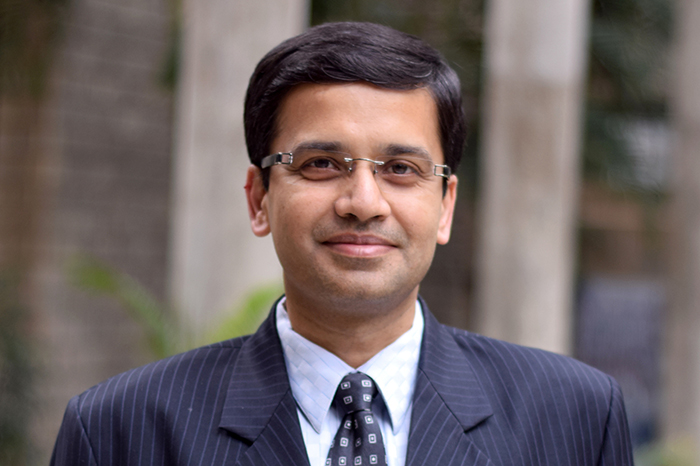
Sourav Mukherji
The dilemma of purpose and profit: Can businesses have both? Asks OB&HRM area faculty Prof. Sourav Mukherji, for COBS Insights. In the piece ‘Profit with Purpose: Innovations from the Global South’, Prof. Sourav deciphers examples of how purpose is more than a precarious possibility for numerous for-profit Indian social enterprises that are leveraging innovative models to align financial sustainability with meaningful social impact.

S Ramesh Kumar
‘Brand symbolism in the digital context’, authored by former Marketing area faculty Prof. S Ramesh Kumar, for ET’s Brand Equity, explores how brands like Coca-Cola, Puma, and Nike use symbols to create emotional connections and how technology plays a pivotal role in reinforcing these associations. In the article, he examines that as brands traverse the changing terrain of digital symbolism, where technology, storytelling, and imagery profoundly influence consumer perception, a dynamic shift is taking place.
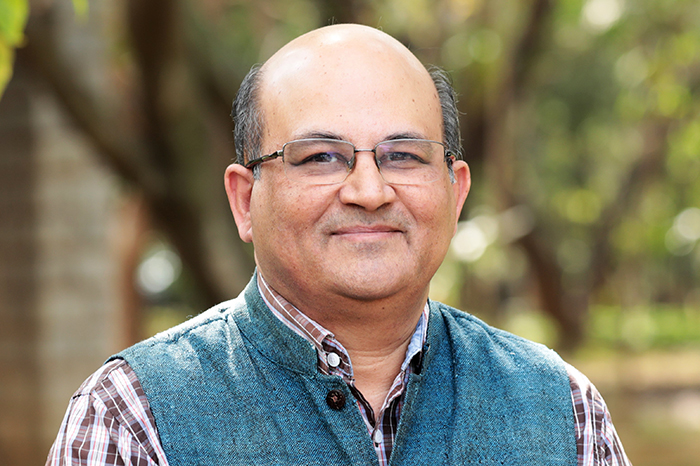
Rishikesha T Krishnan
How can India woo its STEM diaspora to lead the global tech race? Prof. Rishikesha Krishnan, Director, IIMB, and N. Dayasindhu, Co-founder & CEO, itihaasa Research & Digital, explore potential solutions in ‘STEM diplomacy, special schemes—how India can attract diaspora to lead the global technology race’ for The Print.
With tighter immigration and funding disruptions abroad, India has a rare chance to bring back top STEM talent. As the nation pursues its goal for ‘Viksit Bharat 2047’, strategic ‘return to home’ interventions could emerge as the game-changer.
MS Sriram
Every few years, microfinance is hit by the same crisis, the effects of which include—too much lending, coercive collections, and soaring defaults. The same cycle repeats. But why?
According to Prof. M S Sriram, the problem isn’t just bad actors or political shocks, but the ineffectiveness baked into the nature of the model. He pens his thoughts and observations for Economic & Political Weekly (EPW) in his piece ‘Where Medicine Is Poison’.

Prateek Raj
In a feature for Mint, former Strategy area faculty Prof. Prateek Raj, UCL, recounts the grueling trek to the Kedarnath peak, called the ‘Himalayan Mountain Challenge (HMC)’, as part of the Strategic Stewardship course that he offered during his time at IIMB. ‘Learning to lead with a ‘Himalayan mindset’’ offers an excerpt of his insights from this experience and many others while at IIMB, an extended version of which can be found in latest book ‘Atypical’, set to launch at IIMB on 28 February 2025.”
MS Sriram
Every few years, microfinance finds itself at a crossroads. The same concerns resurface—steep interest rates, aggressive loan recovery, over-indebtedness. In his piece ‘Microfinance and the Remedial Pathway’ for the Kannada daily Prajavani, Prof. M S Sriram, Public Policy area, argues that the sector must reinvent itself, with a redesign of interest structures, ethical lending, and customer safeguards.

Rahul Dé
ChatGPT entering the fray has created an all-encompassing buzz around Large Language Models (LLMs). Former Information Systems area faculty Prof. Rahul Dé and PGP ’19 alum Rishabh Ohri, Procter & Gamble, decipher the force and impact of LLMs on business, government and society for Forbes India with their latest article on ‘How Large Language Models are integrating with daily life’.

Rishikesha T Krishnan
With AI emerging as a critical general-purpose technology, global leadership in foundational models is currently concentrated in the US and, to a lesser extent, China—raising concerns about future access restrictions. India must take decisive steps to establish a strong base in AI, argue IIMB Director Prof. Rishikesha T Krishnan and N. Dayasindhu, Co-founder & CEO, itihaasa Research & Digital, in their Times of India article, ‘We need to replicate Aadhaar experience in foundational AI.’
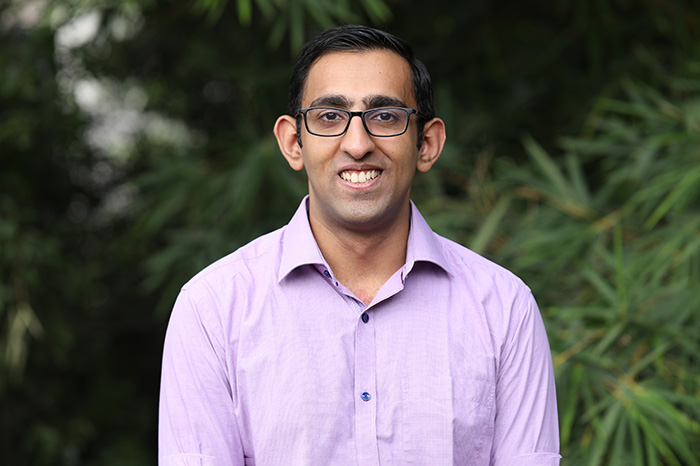
Venkatesh Panchapagesan, Anirudh Dhawan
IIMB Finance & Accounting faculty weigh in on SEBI’s latest insider trading case—involving two senior executives from rival IT firms— for Mint. The case reveals how privileged information about high-value IT deals can be exploited for personal gain, leading to unfair advantages in the stock market.
Prof. Venkatesh Panchapagesan and Prof. Anirudh Dhawan provide their analysis on greed, leaks, and the challenge of policing Insider Trading in ‘How SEBI tracked down an insider trader’.
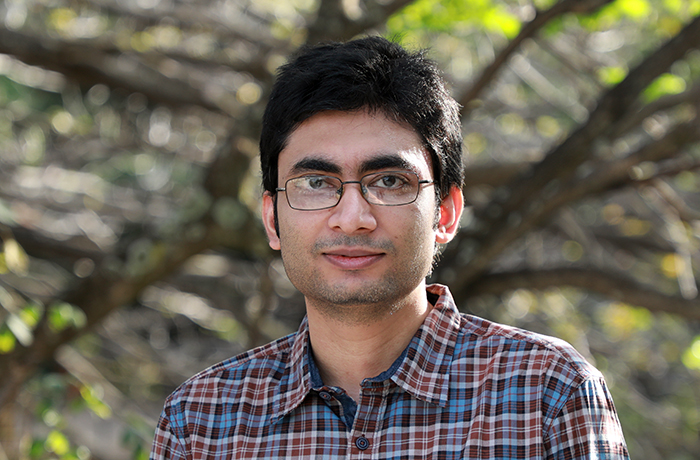
Soham Sahoo
Private schooling, in constituencies represented by the ruling party, has experienced rapid expansion in India – both in terms of number of schools and student enrolment—a study by Prof. Soham Sahoo, Public Policy area, and IIMB PhD scholar Muneer Kalliyil, reveals. But has it led to improvements in educational quality? ‘The influence of local politicians in the private education market’, for the International Growth Centre, investigates.

Allen P Ugargol
The world is undergoing a massive demographic shift in a way where people have the potential to live longer than ever before. The phenomenon prompted Public Policy area faculty Prof. Allen P Ugargol and IIMB PhD scholar Swetcha Poladi to understand how workers perceive their careers relative to retirement. Their insights, featured in Deccan Herald’s ‘Preparing India’s Silver Workforce’, examine the evolving role of older workers in the multigenerational labor market.

Mukta Kulkarni
Prof. Mukta Kulkarni, OB&HRM area, sees a competitive edge in the natural and authentic adoption of inclusivity by business schools. Her piece ‘Shaping inclusive leaders: How B-schools are integrating DEI into education and practice’ for The Hindu’s Businessline, examines how institutions today, at a time of unmitigated innovation, seek to embed DEI principles into their culture, going beyond curriculum changes.
Nishant Kumar Verma
Exploring the origins and evolution of the Pay-As-You-Wish model, IIMB faculty Prof. Nishant K Verma, Production & Operations Management, teams up with JAGSOM’s Prof. Kamalika Chakraborty & Prof. Sayan Chowdhury to examine how brands like Panera Bread, SAME (So All May Eat), and even Radiohead experimented with their pricing strategy—sometimes successfully, sometimes not, in ‘Pay-As-You-Wish: Business model and its challenges’, for Forbes India.

S Ramesh Kumar
A volatile challenge presents itself for brands in an era where customer sentiment looms just one turn away from ‘virality’. ‘Consumer rage in the age of social media’, co-authored by former faculty Prof. Ramesh Kumar S, Marketing area, for ET’s Brand Equity unpacks the psychology behind consumer rage and why even the most credible brands aren’t immune to its impact.

Rishikesha T Krishnan
India nabbed a spot in the top #40 of the Global Innovation Index (GII) a few years ago but has plateaued at #39 over the last three years. ‘How we can spur Indian R&D and innovation’ by Prof. Rishikesha T Krishnan, Director, IIMB, & Dayasindhu N, Co-founder & CEO, itihaasa Research & Digital, for Times of India, looks at the long-term potential of recent policy developments in India, as the nation sets its eyes on achieving ‘global hub’ status by 2047.

S Ramesh Kumar
If you undermine the value of human emotion, even impressive AI will only ever garner tepid results, say Prof. S Ramesh Kumar, Former IIMB Faculty, Marketing Area, and S Swaminathan, Founder of ContraMinds, in their co-authored piece for ET’s Brand Equity.
‘Mindful MarTech’ urges marketing tech enthusiasts to recognize consumers’ growing apathy towards hyper-automated branding.
Nishant Kumar Verma
EV growth is booming. As supply for second-life battery supply increases, inspection has become crucial for second-life EV batteries. Prof. Nishant Kumar Verma and Postdoc Fellow Nandan Singh from the POM area at IIM Bangalore, along with Rajat Verma, Founder & CEO, LOHUM Cleantech, and Prof. Milan Kumar, IIMV, have co-authored ‘Crucial role of inspection in utilizing electric vehicle batteries’, for Forbes India, dissecting make-or-break factors for sustainable repurposing and recyclability of batteries.

Mukta Kulkarni
Open Magazine’s feature on India’s top B-schools 2025 offers a unique, insider view of the foresight that drives IIMB to meet the highest global standards of management education.
In her article, ‘IIM Bangalore: Building Values,’ Prof. Mukta Kulkarni, OB&HRM area, reflects on how IIMB has upheld academic excellence over five decades while evolving with the needs of business, government, and society.

Rishikesha T Krishnan
IIMB Director Prof. Rishikesha Krishnan and N. Dayasindhu, Co-founder & CEO, itihaasa Research & Digital, recalibrate the seismic shift in India’s R&D landscape with the inception of the Anusandhan National Research Foundation (ANRF), for Times of India. The article, ‘Transforming Public Universities into R&D Engines’, revisits India’s rich legacy of pioneering research within public universities—a legacy that has waned over the decades.
G. Sabarinathan
Former Finance & Accounting area Professor G. Sabarinathan’s, latest piece for The Wire, reviews Khan Academy founder Salman Khan’s new book, Brave New Words, which imagines a world where AI reshapes learning just as easily as Khan Academy reshaped online education.
While Khan’s starry-eyed vision of AI adoption in schools paints high hopes, Prof. Sabarinathan’s ‘Can AI help improve learning outcomes scale?’ plays cautious, reminding us that not all bets are guaranteed to pay off.

S Ramesh Kumar
With years of expertise at the intersection of marketing and consumer behavior, former IIMB faculty Prof. S Ramesh Kumar, Marketing area, writes about the delicate balance of authentic storytelling, a strong set of core values and a strategic customer-centric approach when recalibrating customer perception in his latest article ‘Brand makeover: repositioning in a dynamic environment’, for ET’s Brand Equity.

Deepti Ganapathy
According to their latest piece for The South First, which draws attention to the role of women in climate narratives, Prof. Deepti Ganapathy, Management Communication area and Pallavi Datta, Academic Associate, argue that women — particularly those from intersectional, marginalized backgrounds — have consistently stepped into leadership positions to safeguard natural environments, often at the cost of their own increased vulnerability.
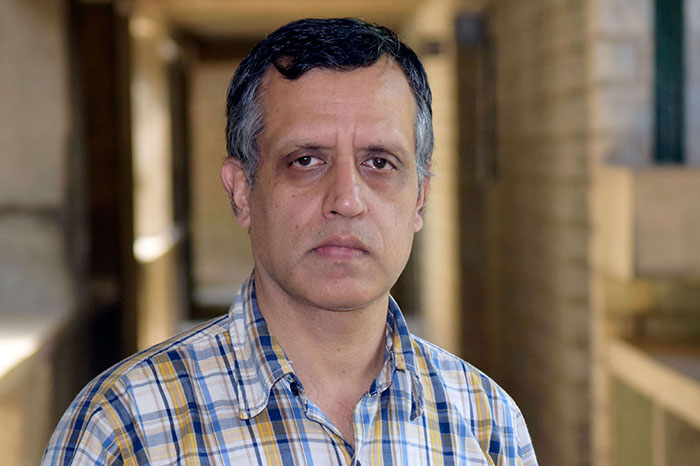
Tarun Jain, Jishnu Hazra
Prof. Tarun Jain and Prof. Jishnu Hazra from the Production & Operations Management area at IIMB break down their co-authored research, ‘3D Printing-as-a-Service: An Economic Analysis of Pricing and Cocreation’ for Forbes India, exploring the suite of solutions—business agility, reduced overhead costs, and access to cutting-edge technologies—that Manufacturing-as-a-Service (MaaS) provides.

M Jayadev
G. Sabarinathan
In a thought-provoking piece for Forbes India, Prof. G. Sabarinathan, Finance & Accounting area, questions whether SEBI Chief Madhabi Puri Buch should step down to uphold the institution’s integrity.

Allen P Ugargol
As Prof. Allen P Ugargol, Public Policy area, discusses in his article, ‘Urban ageing and public policies’ for Deccan Herald, "The 2011 Census recorded 71 million older women and 67 million older men, with projections showing that by 2050, the number of older women will exceed older men by 18.4 million”. This shift brings forth complex challenges, particularly for older women who often face the compounded disadvantages of aging and widowhood.
Mukta Kulkarni
In her latest article for ET’s HRWorld, ‘Inclusive Career Growth: Supporting Employees with Disabilities,’ Prof. Mukta Kulkarni, OB&HRM area, underscores the business advantage of inclusive workplaces.
She argues that embracing inclusivity is not just the right thing to do—it is also a smart move for any business. “Organizational career development initiatives for employees with disabilities can enhance inclusivity and productivity for all employees”.

Rishikesha T Krishnan
In the piece, ‘ER&D GCCs: Powertrains of innovation’ for Times of India, IIMB Director Prof. Rishikesha T Krishnan, Strategy area and N. Dayasindhu, Co-founder & CEO, itihaasa Research & Digital discuss how, in FY23, Engineering and R&D Global Capability Centres in India contributed a staggering $25.6 billion to the country's $46 billion GCC revenue, outshining IT services and BPM.

Allen P Ugargol
In his latest article, ‘Lonely Twilight of Older Women in India’ for The India Forum, Prof. Allen Prabhaker Ugargol explores issues of social isolation, healthcare access, and financial insecurity among older women living alone in India.

S Ramesh Kumar
In an insightful article, ‘Stereotypes - An Eternal Behavioral Lever’ for ET Brand Equity, former faculty member Prof. Ramesh Kumar S, Marketing Area, delves into the enduring influence of stereotypes on brand imagery and consumer behavior.

Rishikesha T Krishnan
In an opinion piece for Business Outlook, IIMB Director Prof. Rishikesha T Krishnan describes Micro, Small & Medium Enterprises (MSMEs) as the “economic backbone of India”. The article, ‘Budget 2024 Responded to Challenges of MSMEs’, highlights the Union Budget’s interventions for MSME resilience and its path for a sustained growth trajectory.
Tarun Jain
Prof. Tarun Jain, and Ayesha Arora, Doctoral Student, from the Production and Operations Management Area at IIM Bangalore, discuss India’s data policy infrastructure for Forbes India. The article, ‘The Data Dilemma: Balancing government needs and privacy in the digital age’ spotlights the vital role of B2G data sharing in a digitalized society.

Prateek Raj
In the article, ‘A blueprint for creating good jobs in India’, for Forbes India, Prof. Prateek Raj from the Strategy area, urges investment efforts in the social sector.
India’s current growth model, which focuses on capital-intensive growth, has spurred tech advancements but has overlooked stable job creation. Reimagining India’s growth, Prof. Prateek proposes a redirection towards overlooked and underfunded social and service sectors.
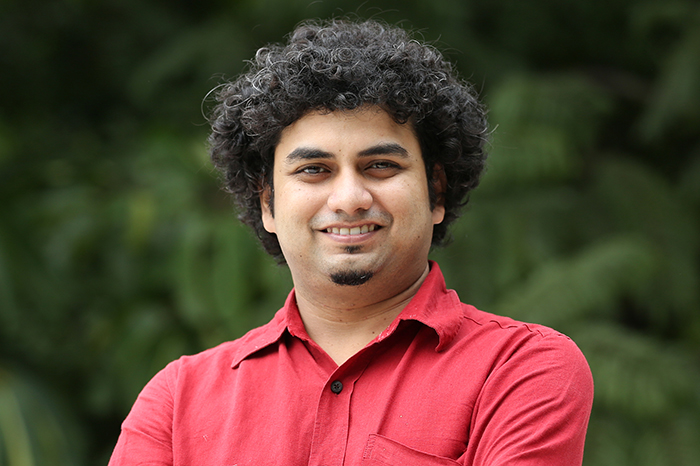
Ritwik Banerjee
‘What Exit Pollsters Can Learn From Empirical Social Science’, writes Prof. Ritwik Banerjee, Associate Professor in the Economics area, in his latest article for The Wire. The demand for a methodical approach to polling stems from the significance of transparency in polling processes, and its lack thereof.

Prateek Raj
“We must involve our youth in volunteering and socially conscious work and value those youngsters with genuine civic engagement backgrounds”, writes Prof. Prateek Raj, from the Strategy area at IIMB, in this article in South First.
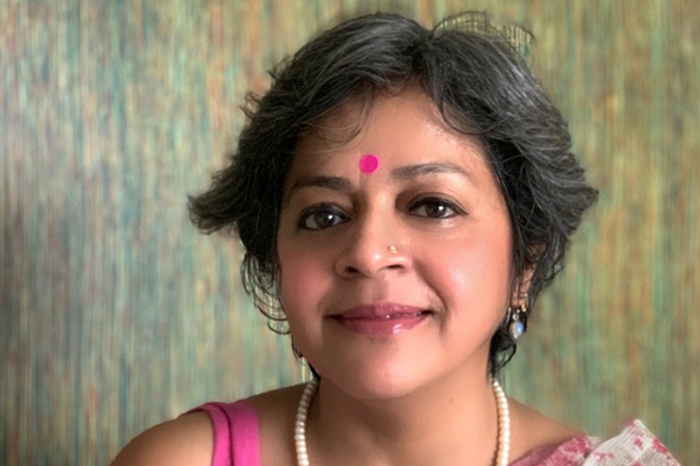
Debolina Dutta
In this Pride Month special article in Forbes India, Prof. Debolina Dutta, from the OB&HRM area at IIMB, highlights the importance of LGBTQIA+ inclusion in Corporate India. “The celebration of Pride Month may be seen by some sceptics as “pinkwashing”, but it is often the start of a long and arduous journey toward building a truly inclusive organization”, she writes.

Rajalaxmi Kamath
Is “security” work secure, ask IIMB Professor Rajalaxmi Kamath, from the Public Policy area, and PhD scholar Lakshmi Parvathy in this article in Hindu Business Line.
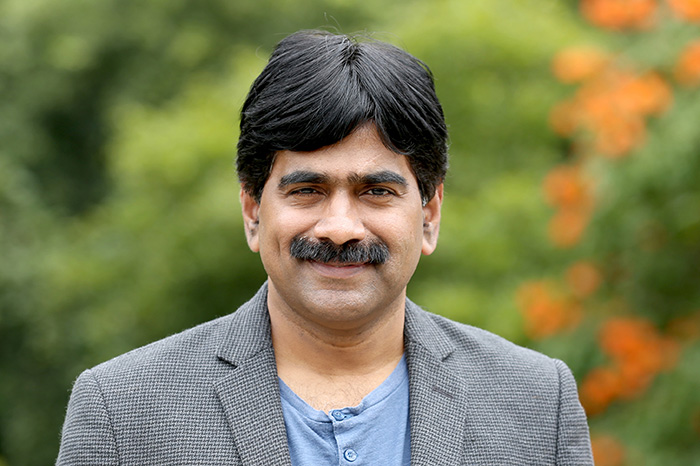
U Dinesh Kumar
B-schools should ensure their graduates can leverage the skills to thrive in the evolving business landscape, writes by Prof. U Dinesh Kumar, Professor in the Decision Sciences Area at IIM Bangalore, in this Opinion article in the anniversary edition of Education Times (ToI).

Debolina Dutta
Read more in this Opinion piece in Financial Express by Prof Debolina Dutta, from the OB&HRM area at IIM Bangalore.

Allen P Ugargol
The world is grappling with an impending and existential threat of Antimicrobial Resistance (AMR) that has the potential to unsettle medical progress and the very foundations of health systems that have evolved over time. In this article in Economic Times, Prof. Allen P Ugargol, faculty in the Public Policy area at IIMB with a special interest in healthcare and ageing, and Adisri Swain, write that a long-term vision of incentivising drug-discovery research that is innovative and cost-efficient is crucial.

Debolina Dutta
The possibilities of metaverse adoption in HR are immense and exciting, writes Prof. Debolina Dutta, in this article in Economic Times. She also discusses the need for judicious adoption.
G. Sabarinathan
The city ranks #33 in the global startup funding ecosystems list. Prof. G Sabarinathan, from the Finance and Accounting area at IIMB, presents an analysis in this article in Forbes India.
Vasanthi Srinivasan
Prof. Vasanthi Srinivasan, from the OB&HRM area at IIMB, weighs in on India Inc’s DEI initiatives and the meritocracy debate in this article in Hindu BusinessLine.

S Ramesh Kumar
In this article in Economic Times, Prof. S Ramesh Kumar, retired faculty from the Marketing area at IIMB, explores how marketers can leverage social media and technologies like AI & ML to build customer base.
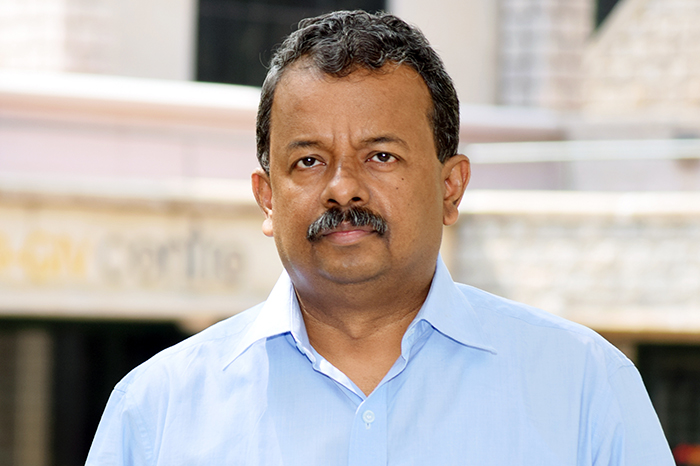
Gopal Naik
Prof. Gopal Naik, Jal Jeevan Mission Chair Professor at IIMB, and Gopi Sankar G, from APU, explain the need to create opportunities for viable livelihood activities and enhance farmers’ asset base, in this article in Forbes India. “There is a need to build the capabilities of agricultural households to lead sustainable livelihoods,” they say.

S Ramesh Kumar
What is the role of situational ethics in brand and marketing? Prof. S Ramesh Kumar, former faculty in the Marketing area at IIMB, examines a few controversial campaigns to explain in this article in Economic Times.
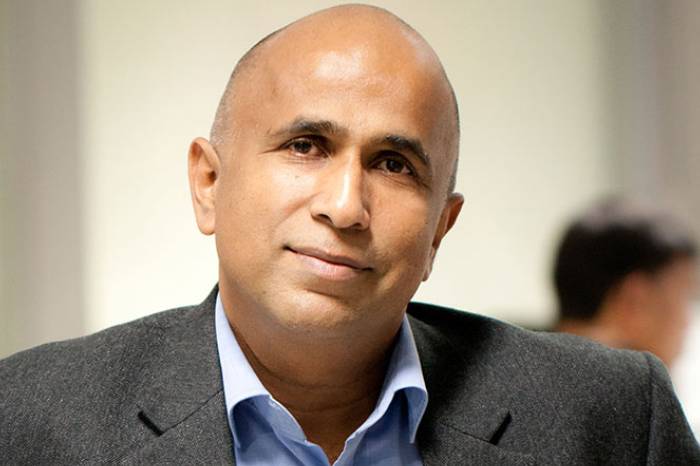
K Ganesh
Prof. K Ganesh, serial entrepreneur and adjunct faculty at IIMB, shares suggestions on making education inclusive, equitable, and accessible to all in this article in Forbes India
Mukta Kulkarni
A few months ago, autorickshaw ride-hailing app ‘Namma Yatri’, in Bangalore, launched ‘Purple Rides’, an initiative for a more inclusive and accessible ride-hailing experience. Prof. Mukta Kulkarni, from the OB&HRM area at IIMB, and Shanti Raghavan, Co-Founder, Enable India, worked closely with them, studying and suggesting ways to enhance the effectiveness of this initiative.

S Ramesh Kumar
Product innovation in isolation is not adequate in this marketing era. Amazon, Netflix and Apple are brands that have used technology-based customer experience to sustain their marketing success, writes Prof. S Ramesh Kumar, former faculty, from the Marketing area, in this article in Economic Times.

Sourav Mukherji
In this article in Open, Professor Sourav Mukherji offers an overview of the rich academic legacy of IIM Bangalore and talks of the Institute’s plans for the future in the area of UG education.
Nishant Kumar Verma
In this article in Forbes India, Nandan Kumar Singh, Prof. Milan Kumar and Prof. Nishant Kumar Verma explain why India must take pro-active measures to implement a robust battery policy focused on second-life applications to fully realise the potential of Battery Energy Storage System (BESS) products.

Rishikesha T Krishnan
Meaningful policy interventions at the state level can help build successful S&T clusters to propel our economy towards the $5 trillion mark and beyond in the coming decades, write Professor RT Krishnan, Director, IIM Bangalore, and N Dayasindhu, Co-founder and CEO, itihaasa Research and Digital, in this opinion article in Deccan Herald.

Prateek Raj
“The fight for queer equality won’t be championed solely by well-intentioned allies advocating for us. It necessitates a ground-up approach, urging more of us to assert our presence and voice”, writes Prof. Prateek Raj, from the Strategy area at IIMB, in this article in Indian Express.

Amar Sapra
Authored by Vansh Lakhina and Ashish Pisal, second-year MBA students with Professor Amar Sapra, Faculty in the Production & Operations Management and IIMB Chair of Excellence at IIMB, the article, published in Economic Times, discusses the need for a contract manufacturing organization (CMO) platform in the pharmaceutical industry. The authors argue that such a platform would benefit both pharmaceutical companies and CMOs by facilitating information sharing and streamlining the onboarding process.
Nishant Kumar Verma
Properly implemented, the RtR policy can help achieve India's commitment to reach carbon neutrality by 2070 during its transition to a green economy. While the launch of the national RtR portal is a step in the right direction, the Government of India has to deal with the pushback from manufacturers simultaneously, balance consumers' and manufacturers' expectations and strengthen the RtR legislation, write Sayan Chowdhury, Assistant Professor, Digital Business and Analytic and Prof. Nishant Kumar Verma, Assistant Professor, POM Area, IIM Bangalore.
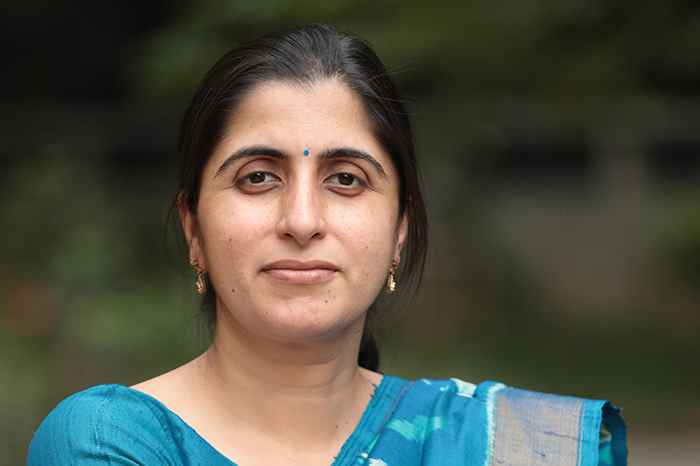
Manaswini Bhalla
In this article in Forbes India, Professor Manaswini Bhalla, from the Economics area at IIMB, and Tina Vinod, Founder and Chief Consultant at Diversity Simplified, write that in a world of labels and stereotypes, our power lies in exploring the intricate dimensions of our identities while embracing the vibrant, interwoven tapestry of others.

Deepti Ganapathy
Today, firms are grappling with the ‘communication’ aspect of sustainability. Perception management amongst their various stakeholders, using their official social media accounts to engage with communities on their sustainable practices are some of the key concerns, writes Dr Deepti Ganapathy, from the Management Communications area at IIMB, in this article in ‘Entrepreneur India’.
Venkatesh Panchapagesan
Prof. Venkatesh Panchapagesan, Chairperson, Real Estate Research Initiative at IIMB, explains why Fractional Ownership Platforms (FOPs) are one of the most exciting developments to hit the Indian real estate sector in recent years, in this article in Hindu Business Line.
Hema Swaminathan
Prof. Hema Swaminathan and Supriya Lakhtakia, from IIMB, and Dr. Rahul Lahoti, analyze the recent landmark judgement by the Madras High Court (Kannaian Naidu vs Kamsala Ammal) and shine the spotlight on gendered roles and responsibilities dictated by social norms, the structural inequality faced by women in India, and the interplay of norms and lack of legislation for gender equality in an intimate relationship, in this article in The Wire.
Venkatesh Panchapagesan
In this article on News 18, Prof. Venkatesh Panchapagesan, Chairperson, Real Estate Research Initiative at IIMB, and Sushmitha Srihari, explain why conciliation should be an anchor dispute resolution strategy for every RERA.

Rishikesha T Krishnan
Prof. Rishikesha T Krishnan, Director, IIMB, and N Dayasindhu, Co-founder-CEO, Itihaasa Research & Digital, believe India needs to build a strong capability in ‘Pasteur’s quadrant’, which is application-inspired basic research. They explain how the National Quantum Mission’s focus on applications provides an opportunity to build a national-scale translation capability, in this article in Deccan Herald.
Jitamitra Desai
Why do we have such a limited number of tax filers in the country and how we draw them into the formal economy? Here are five ways we can change the tax code to ensure inclusion, writes Prof. Jitamitra Desai, from the Decision Sciences area at IIM Bangalore, in this article in Forbes India.

U Dinesh Kumar
Generative AI has been the underpinning and steering factor as AI advances from auto-pilot mode to co-pilot mode. Now the new course—of fairness, equity, bias-free development, and deployment—will require responsible policymaking, write Aparana Gupta and Prof. U Dinesh Kumar in this article in Forbes India.

Deepti Ganapathy
What can mid-level managers do to make sense of change and stay relevant to their organisation? Dr. Deepti Ganapathy, from the Management Communication area at IIMB, offers suggestions, in this article in Deccan Herald.
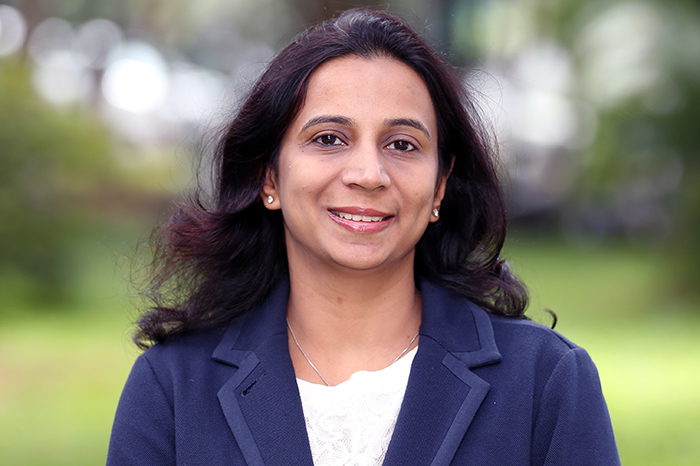
Prof. Srivardhini K Jha
Brindha Srinivasan and Prof. Srivardhini K Jha , from IIMB, delve into an area hitherto ignored in this article in Entrepreneur India.
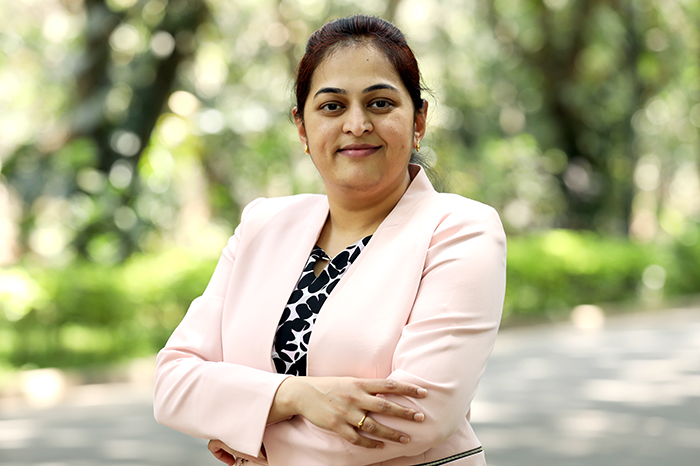
Ramya K Murthy
Prof. Ramya K Murthy , from the Entrepreneurship area at IIMB, writes on ‘Digital technologies fueling the India startup story’ in BW Businessworld Magazine
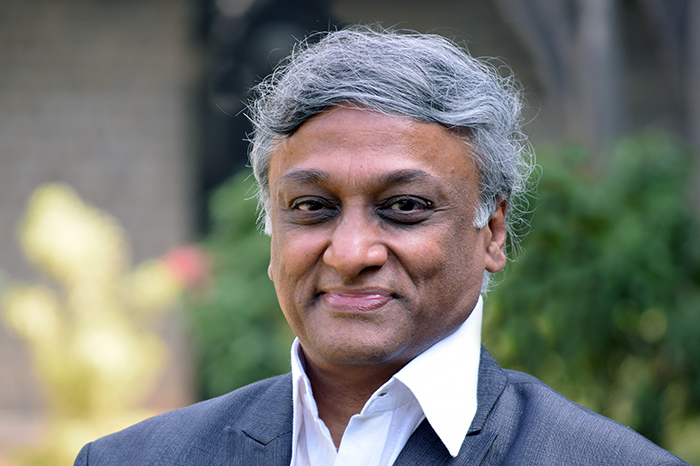
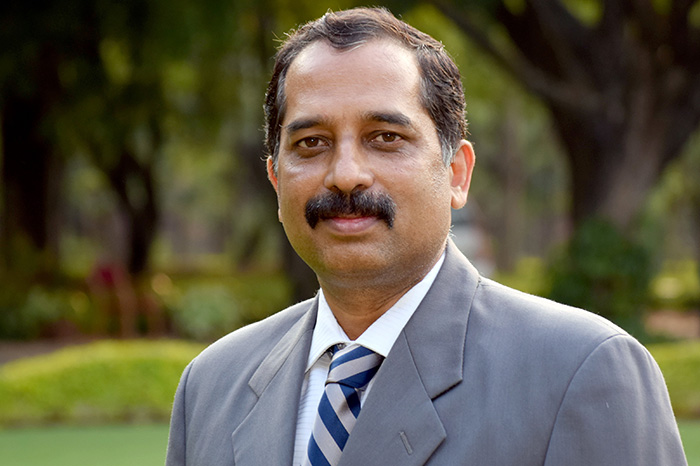
S Raghunath, G Shainesh
In this article in Financial Express by Prof. S Raghunath & Prof. G Shainesh highlight the several initiatives launched to achieve self-reliance in defence manufacturing and innovation.
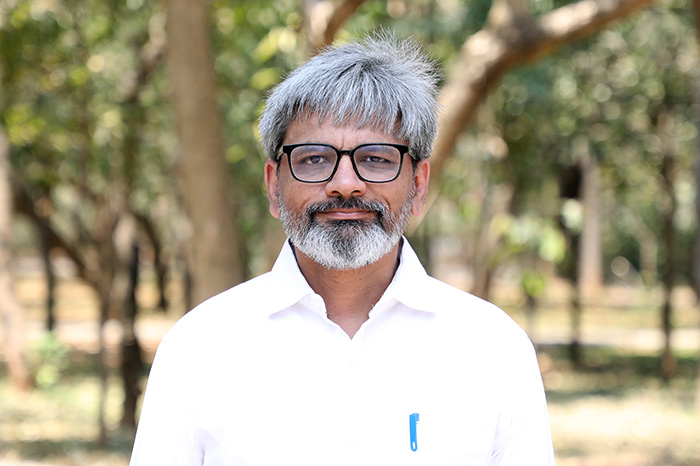
Apurva Sanaria
In this article in ET HR World, based on his research, Dr Apurva Sanaria, from the OB&HRM area at IIMB, writes that enhanced diversity, in the absence of perceived inclusion, can create more problems than it solves.

Deepti Ganapathy
WHO is actively engaging with a range of healthcare providers, practitioners, and academics to design a curriculum on ‘Infodemiology’ – the science of managing infodemics.
As we look into the future, we need a decisive investment in health infrastructure and policies from governments and the private sector alike to give rise to a healthy population that feels well-supported emotionally and physically to be happy and productive in their life, writes Dr. Deepti Ganapathy, from the Management Communication area at IIMB, in this article in eLETS Health.
G. Sabarinathan
In this review published in Hindu Business Line, Prof. G Sabarinathan, from the Finance & Accounting area at IIMB, says the book, Unfinished Business, dwells at length on the interplay between public and industrial policy and business, which enhances its usefulness as a work of business history.

Allen P Ugargol
An MBA in Enterprise Management is one of the most valued and sought after course for mid-career managers, who invest their time and effort to re-engage in the classroom to refresh their careers with renewed vigour, writes Prof. Allen P Ugargol, Chairperson of the two-year MBA for Working Professionals offered by IIMB, in this article in Times of India.
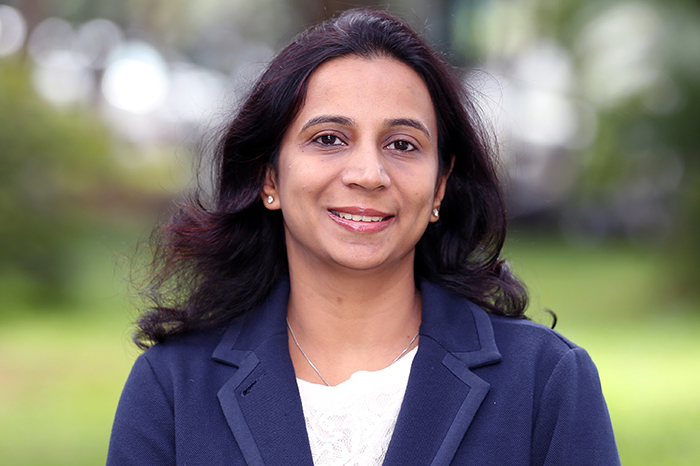
Srivardhini K Jha
In this article in Times of India, Sriram K, alumnus from PGPEM which is the two-year MBA for experienced professionals at IIMB, and Prof. Srivardhini K Jha, Chairperson, NSRCEL and faculty in the Entrepreneurship area at IIMB, explain how Global Capacility Centres (GCCs) can establish themselves as true value creators.
Tirthatanmoy Das
In the second article in the series, Surjit S. Bhalla, Former Executive Director, IMF, and Prof. Tirthatanmoy Das, faculty from the Economics area at IIMB, examine data and trends about women in the work force in India, in this article in Times of India.
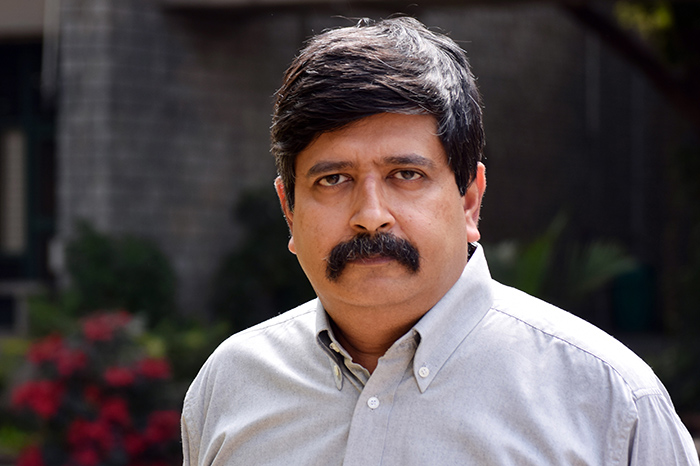
Ganesh N Prabhu
Prof. Ganesh N Prabhu, from the Strategy area at IIMB, writes on Quick Commerce and offers suggestions for players to sustain and grow in India, in this article in Indian Retailer.

Prateek Raj
Queer people need hope, not humiliation, writes Prof. Prateek Raj, from the Strategy area at IIMB, in this article in the Indian Express.
Tirthatanmoy Das
Surjit Bhalla, Former ED, IMF, and Prof. Tirthatanmoy Das, faculty in the Economics area at IIMB, attempt to decode the job market in this article in Times of India.

Allen P Ugargol
Curriculum shifts towards improved business communication, soft skills, interpersonal skills, culture-sensitivity alongside emerging skills such as data science, AI and blockchain, will be vital for transformative growth of MBA grads who can cater to future business needs, writes Prof. Allen Ugargol, Chairperson of the Post Graduate Programme in Enterprise Management (PGPEM) at IIM Bangalore, in this article in The Pioneer.
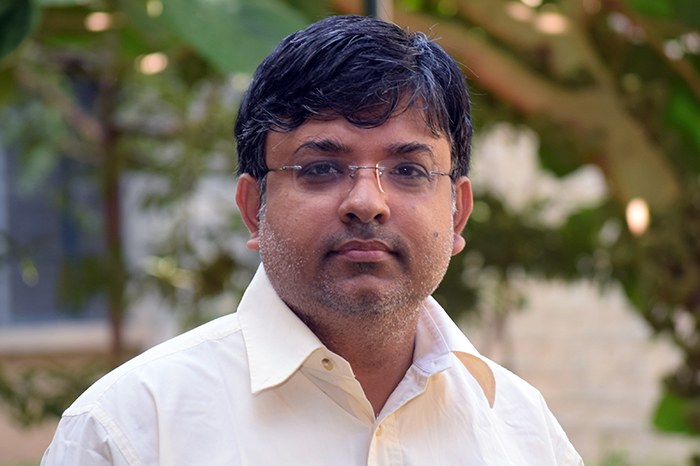
Kanchan Mukherjee
By reflecting on one’s decisions and understanding the underlying mechanisms, it is possible to educate one’s intuition, and that’s what good leaders do, write Prof. Kanchan Mukherjee, from the OBHRM area, and Abhinayan Sridhar, a second-year PGP student at IIMB, in this article in Forbes India.
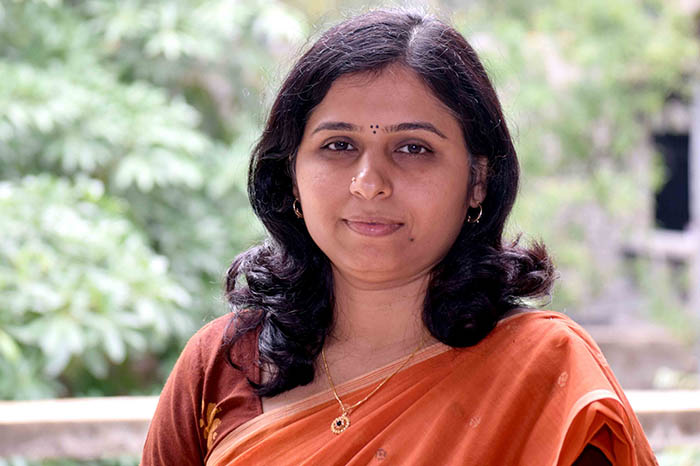

Haritha Saranga, Kanchan Mukherjee
In this article in Times of India, Professors Haritha Saranga and Kanchan Mukherjee, and doctoral scholar at IIMB, Satyajit Roy explore ways in which sustainability can be made part of the curriculum in schools.
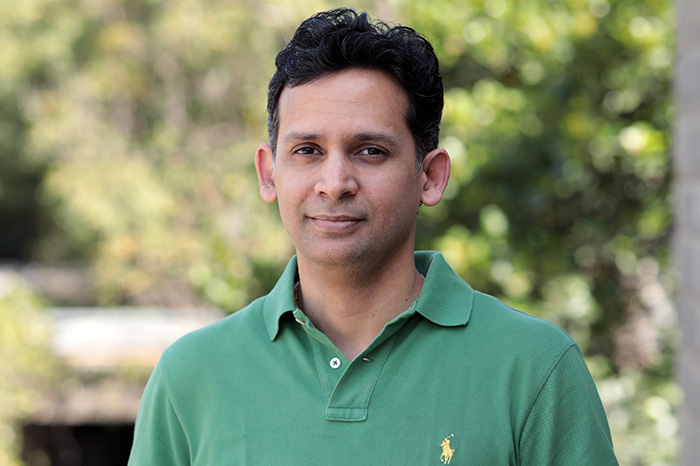
Kunal Dasgupta
Although a large share of land in India is used for cultivation, large tracts of this are unproductive and produce low crop yields. In this article in Ideas for India, a premier economic policy portal, Prof. Kunal Dasgupta, faculty in the Economics area, and doctoral student Rahul Rao at IIMB, explain their calculations to determine the minimum amount of land that would be required to meet the outputs for a set of crops. They argue that optimising land allocation can release millions of hectares of land for non-agricultural purposes, while also ensuring that food security remains unaffected.
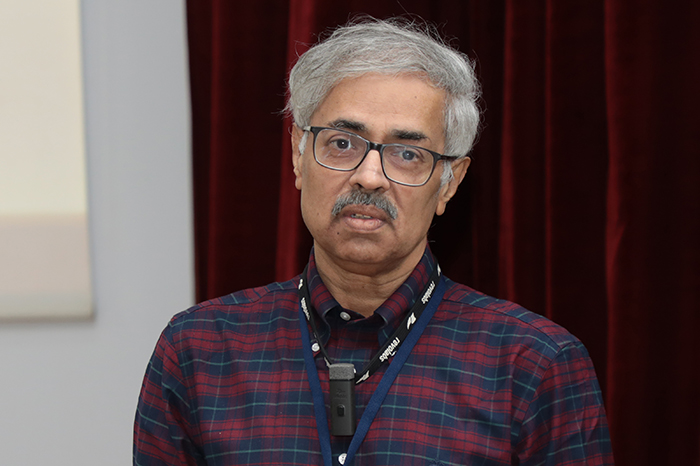
A Damodaran
The popular notion of the metaverse being a capital-wasting social media interaction fad obscures some of its potential welfare impact. Here’s how museums and art galleries can exploit it to their benefit, writes Prof. A. Damodaran, faculty from the Economics area at IIMB, in this article in Forbes India.
Tirthatanmoy Das
In this article in The Indian Express, Dr Surjit S. Bhalla and Prof. Tirthatanmoy Das, faculty in the Economics area at IIMB, write that both government and non-government data show a healthy employment gain since pre-Covid 2019
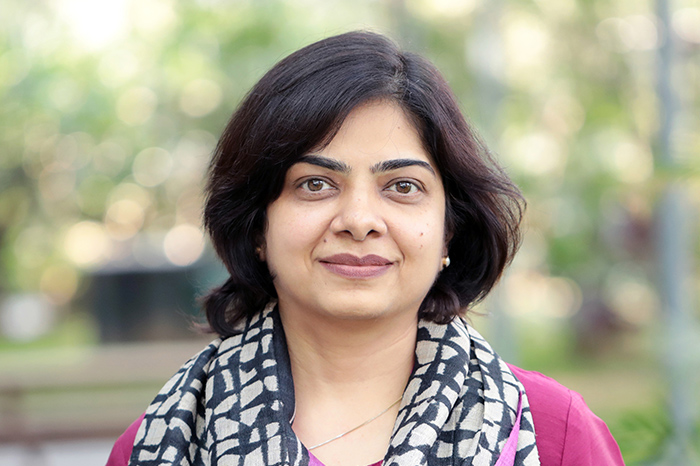
Tirthatanmoy Das
In this article in Times of India, Dr Anjana Karumathil, alumna of IIMB’s PhD program and faculty in IIM Kozhikode, and Prof. Ritu Tripathi, from the OB&HRM area at IIMB, explore ways in which employee productivity can be enhanced.

Allen P Ugargol
Prof. Allen P Ugargol, faculty in the Public Policy area at IIMB, emphasises that for most low and middle income countries (LMICs) who are yet to emerge out of the sequalae faced by rapid population growth and whose significant investments have been geared towards maternal and child health focused initiatives, it is probably difficult to envision another age-group requiring immediate attention and support, in this article in Express Healthcare.

Ganesh N Prabhu
MBA students at IIMB Komal Nanwani and Ankit Raj and Prof. Ganesh N Prabhu, faculty in the Strategy area at IIMB, ran a survey to understand the perspectives of Q-commerce users. They have written about their findings with suggestions for players in this highly competitive arena, in this article in Forbes India.

Rishikesha T Krishnan
A coherent single definition is important since it is the starting point for formulating strategies to build capabilities in deeptech and translate these capabilities into products and solutions that make lives better, write Professor Rishikesha Krishnan, Director and Ram Charan Chair Professor in Innovation and Leadership at IIM Bangalore, and N Dayasindhu, Co-founder and CEO at itihaasa Research and Digital, in this article in Deccan Herald.

Ludvig Levasseur
Referencing their academic paper forthcoming in Strategic Entrepreneurship Journal, Prof. Ludvig Levasseur, from the Entrepreneurship area at IIMB, and his co-authors, focus on how Future Time Reference impacts a speaker’s likelihood of engaging in social entrepreneurship, in this article in Forbes India.

Rahul Dé
Dr. Rahul Dé, Professor of Information Systems at IIMB, and MBA students PN Vamsi and Mansi Agarwal, discuss the opportunities and challenges and emphasize that governments will have to set up policies to regulate and control this space as it will become ripe for new forms of crime and exploits, in this article in Times of India’s Tech blog.

A Damodaran
Creative positioning of climate action projects, if backed by novel regulatory and market-based mechanisms, can draw in a larger pool of financing from a diverse set of private donors, including those guilty of creating carbon trails in the first place, writes Professor A Damodaran, from the Economics area, in this article in Forbes India.

Prateek Raj
There is a need to revisit some of our core assumptions about business, economy, and work. We need to find a new way of thinking about how we design and run organisations, and organise the economy in the 21st century, such that the human experience, voice, and empathy is at the centre, write Vikram Kohli, from the School of Planning and Architecture Bhopal, and Dr. Prateek Raj, faculty in the Strategy area at IIMB, in this article in Forbes India.

A Damodaran
Solutions such as a composite global carbon price index could go a long way in realising the climate finance goals framed at the Glasgow Climate Summit. But there are a few hurdles the world needs to climb to make it happen, writes Professor A Damodaran, from the Economics area at IIMB, in this article in Forbes India.

Haritha Saranga
Studying Spain, a world leader in cadaveric organ donations, and examining the challenges in India, Prof. Haritha Saranga, from the Production & Operations Management area at IIMB, and Dr Akanksha Misra, from SPJIMR, make the case to strengthen cadaveric organ transplants, in this article in Economic Times.
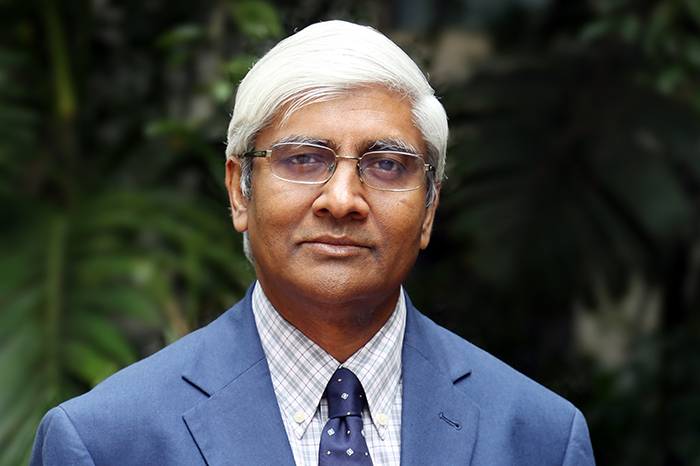
K Kumar
At its core, entrepreneurship is a process of creation of value, both for consumers in particular and for society at large, write Prof. K Kumar and Manjunath A N, doctoral student at IIMB, in Entrepreneur.com
G. Sabarinathan
Founders running crazy to achieve growth at all costs is not new to the world. But the investors in these companies are equally answerable. Here’s why, writes Professor G Sabarinathan, from the Finance area at IIMB, in this article in Forbes India.
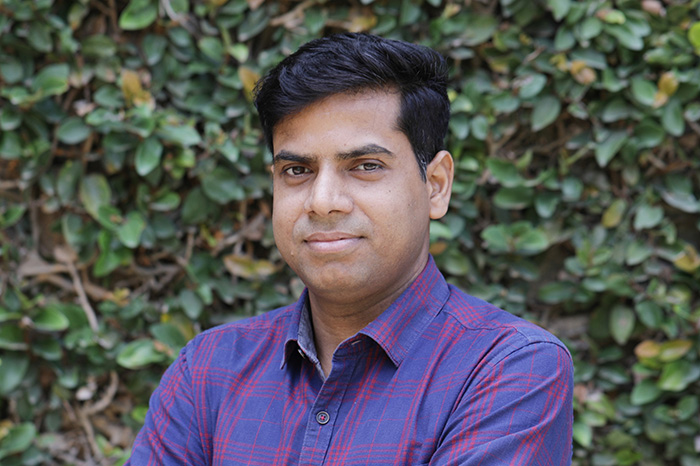
Gopal Das
Based on a case co-authored with researchers from across thr world, Prof. Gopal Das, of the Marketing area at IIMB, writes that mechanisms that reduce the adverse impact of discretionary consumption are critical. Thus, plans like the “Save More Tomorrow Program” that enrol people in a pension scheme with small contributions could immensely benefit them, in this article in Outlook Money.

Sourav Mukherji
In this article in Economic Times, Prof. Sourav Mukherji, from the OB&HRM area at IIMB, writes that with increasing automation, the need to have complementary human interface, i.e., technology that is complemented by human touch, is likely to increase, rather than the other way round.

A Damodaran
In this article in CXO Outlook, Prof. A. Damodaran, faculty in the Economics & Social Sciences area at IIMB, writes that the valuable aesthetic depth of our classical and folk arts offers vital lessons for the art forms of the West.
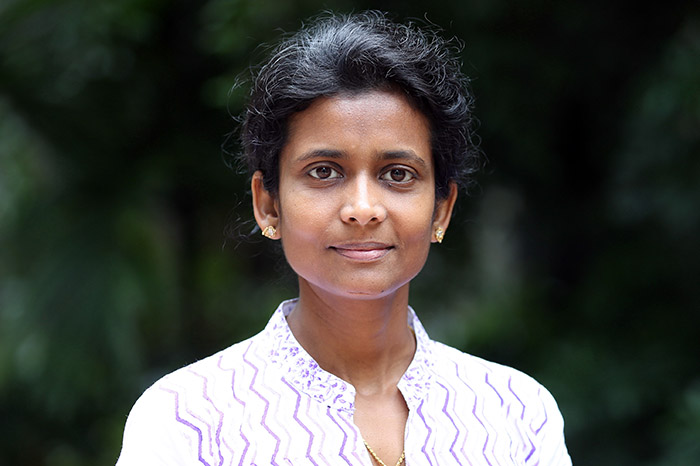
Dalhia Mani
Family businesses play a crucial part in the economic growth of a country when they move with the times. But many Indian family businesses are still stuck with the traditional ways of functioning. Here’s what they need to do to break archaic chains and flourish, writes Prof. Dalhia Mani, faculty in the Entrepreneurship area and Programme Director of the Management Programme for Entrepreneurs & Family Businesses offered by IIMB, in this article in Forbes India.
Sankarshan Basu
One of the main challenges in the growth of banking in India is rising bank frauds and the costs thus imposed on the system – this has been highlighted by Gerard and Verschueren (2002); Nitsure, (2017); and Sharma, (2012). Interestingly, the problem is not only for India, it is a global issue – the Global Banking Fraud survey by KPMG (2019) shows an increase of 19% in banking frauds between 2010-2015 and 2015-2019, writes Professor Sankarshan Basu, from the Finance & Accounting area, in Economic Times.

S Ramesh Kumar
Prof. S Ramesh Kumar, from the Marketing area, explains how contemporary 4Ps – Purpose, Pride, Protection, Partnership, and Personalisation – are relevant to this digital age, in this article in Economic Times.

Ritu Tripathi
Dr Anjana Karumathil and Prof. Ritu Tripathi, from the OB&HRM area, write on ‘India’s Gig Workers: Life at the Mercy of Platforms & Algorithms’ in The Quint.

Deepti Ganapathy
The role of communication as a strategic function is incomparable, especially during a crisis. In this article in Forbes India, Dr Deepti Ganapathy, from the Centre for Management Communication at IIMB, explains how carefully planned channels of communication can serve as the conduit between the aggrieved and leadership teams for quick and fast relief and redressal of grievances.

Dalhia Mani
In this article published in Deccan Herald, Prof. Dalhia Mani, faculty in the Entrepreneurship area at IIMB, offers a list of assumptions, even if they are unintentional, about women colleagues that might be holding back many a competent man from growing in an organisation, and provides a primer on what can be done about it.

Debolina Dutta, Vasanthi Srinivasan
In a recent case published by Harvard, Professors Debolina Dutta and Vasanthi Srinivasan, from the OB&HRM area, examine the business imperatives for LGBTQ+ inclusion and commitment needed to build a truly inclusive work culture, in this article in Economic Times.

S Ramesh Kumar
Intangibles of branding will continue to impact the mind digitally or otherwise, writes Prof. S Ramesh Kumar, from the Marketing area, in this article in Economic Times.
Mukta Kulkarni
Prof. Mukta Kulkarni, from the OB&HRM area at IIMB, and Shanti Raghavan, of Enable India, share how attention to persons with disability can energize the economic ecosystem. They use an inspiring example to make their case, in this article in Deccan Herald.

Ludvig Levasseur
Bidisha Bhattacharjee and Prof. Ludvig Levasseur, from IIMB, apply Jack Welch’s leadership wisdom to entrepreneurship to help entrepreneurs better manage the entrepreneurial process, in this article in Forbes India.
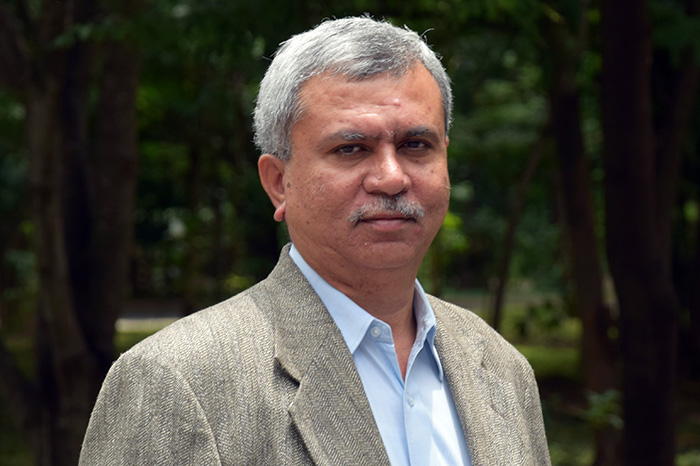
Trilochan Sastry
In this opinion article in The Hindu, Prof. Trilochan Sastry suggests that India, like the Chinese and Singapore governments, can earn much more from government investments.

Ritu Tripathi
The short-term experience of performing tasks by choice and getting paid immediately is gratifying. However, there may be less apparent long-term consequences, write Dr Anjana Karumathil and Prof. Ritu Tripathi, from the OB&HRM area, in Forbes India.
Nishant Kumar Verma
Prof. Nishant Kumar Verma and Shiril Saju identify some of the potential roadblocks and suggest initiatives that can help the country become a global drone hub by 2030, in this article in Forbes India.

Deepti Ganapathy
The challenge of communicating the science and consequences of climate change to the public at large continues to remain a key concern. The role of policy writers, scientific community (both social sciences and fundamental sciences) and the media in addressing this is critical, writes Dr Deepti Ganapathy, from the Management Communication area, in Times of India.

Rishikesha T Krishnan
IIMB Director and Professor of Strategy Rishikesha T Krishnan and itihaasa Research & Digital CEO N. Dayasindhu write that achieving our climate goals will require both improvement of efficiencies in the existing technologies we use as well as substitution by new technologies in this article in Times of India.

Deepti Ganapathy
Organisations headed by leaders who value and commit to being active enablers of consistent communication perform with ease and can face any crisis confidently, writes Dr Deepti Ganapathy, from the Management Communication area, in this article in Forbes India.

Srivardhini K Jha
As various elements of the ecosystem are starting to coalesce for cleantech, we need innovation-driven entrepreneurs who can bring together the power of science with a scalable business model, write Prof. Srivardhini Jha and Deepak Upreti from the Entrepreneurship area at IIM Bangalore, in this article in Entrepreneur India.
Hema Swaminathan
The modern workplace continues to be stifled by patriarchal impulses. We need younger men and women to take charge or at the very minimum, ensure that their voice is heard when workplace policies are contemplated, writes Prof. Hema Swaminathan, from the Public Policy area, in this article in Forbes India.
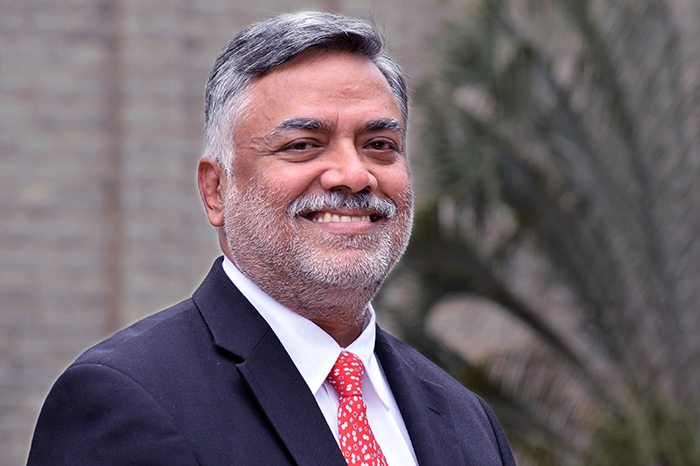
J Ramachandran
Prof. Ramachandran J and Savithran Ramesh, from the Strategy area, seek to make the case that the Supreme Court ought to relook at some of the principles undergirding its judgment, especially those that relate to the role of the board of directors of a corporation, in this article in Bloomberg Quint.

S Ramesh Kumar
Prof. S Ramesh Kumar, from the Marketing area at IIMB, discusses the factors that form the core of the celebrity associated brand usage in this article in Economic Times.

Rahul Dé
Digital rupee is likely to cater to the educated and technology-savvy users, but the replacement of extant modes like cash and traditional banking is questionable, write Professor Rahul Dé , from the Information Systems area at IIM Bangalore, and Prof. Abhispa Pal, from IIM Kozhikode, in this article in Outlook Money.
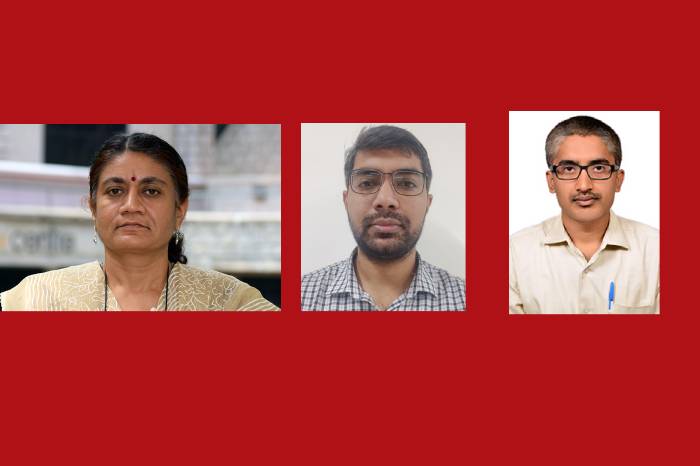
Rajalaxmi Kamath, Vinay V Reddy, A N Manjunath
The current placement-driven engineering education model has been pushing traditional engineering students towards the IT sector. The right kind of regulatory oversight to ensure interdisciplinarity is necessary to stop engineering colleges from becoming the fabrication centres of foot soldiers for IT and emerging technology markets, write Prof. Rajalaxmi Kamath, faculty in the Public Policy area at IIM Bangalore, and doctoral scholars Vinay V Reddy and A N Manjunath, in Forbes India. This piece is based on an ethnographic study in a private engineering college near Bengaluru.

Sourav Mukherji
While coordination can be achieved through processes, collaboration needs more than that. Rules and incentives can achieve compliance, but commitment requires something more, writes Prof. Sourav Mukherji, from the OB&HRM area at IIMB, in this article in Economic Times.

S Ramesh Kumar
Professor Ramesh Kumar S, from the Marketing area, explores the subject in this article in Economic Times.

Ludvig Levasseur
Internationalising small firms transform their readily available entrepreneurial orientation into successful international performance through learning and networking capabilities. Here are a few ways to nurture it further. By Prof. Masoud Karami, Department of Marketing of University of Otago Business School in New Zealand, Prof. Jintong Tang, Saint Louis University in the United States and Prof. Ludvig Levasseur, Entrepreneurship area at Indian Institute of Management Bangalore, in Forbes India.

Rahul Dé

S Ramesh Kumar
The implicit world, of consumers, may offer an infinite number of brand propositions that are only limited by the imagination of brand managers, writes Prof. S Ramesh Kumar, faculty in the Marketing area at IIMB, in Economic Times.

Rahul Dé

Ludvig Levasseur
Entrepreneurs welcome unpredictability because it presents new possibilities and new opportunities. Here’s a handy guide, in Forbes India, by Prof. Ludvig Levasseur, from the Entrepreneurship area at IIMB, and his co-authors, to better deal with uncertainties.
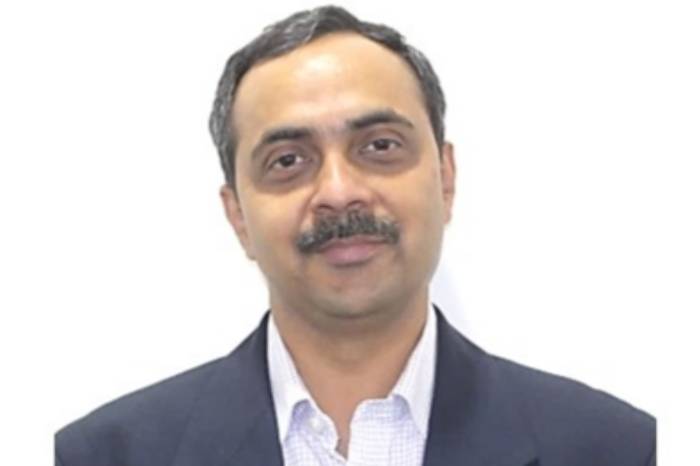
Anand Sri Ganesh
Anand Sri Ganesh, CEO of NSRCEL at IIMB, lists and describes eight underlying entrepreneurship and innovation trends that will help Indian entrepreneurs endure and survive beyond the pandemic to define the state of entrepreneurship-led progress in the years to come.

Rishikesha T Krishnan
Professor Rishikesha T Krishnan says the “macro magic” of identifying new opportunities, complemented by a strong “micro magic” – integrating theory and practice, generalization and context, best practices and next practices, to provide unique immersive learning experiences, is what sets IIMB apart from other B-schools. Increasingly, IIMB is trying to extend this magic into the digital space as well, he writes in this article by invitation in the magazine, OPEN.

Ludvig Levasseur
When managed appropriately, emotions can fuel entrepreneurial alertness, writes Prof. Ludvig Levasseur, from the Entrepreneurship area at IIMB, in this article in Forbes India.

S Ramesh Kumar
An Impactful Journey: Prof. S Ramesh Kumar, from the Marketing area at IIMB, lists three kinds of expectations that brands ned to be sensitive to, in this article in Economic Times.
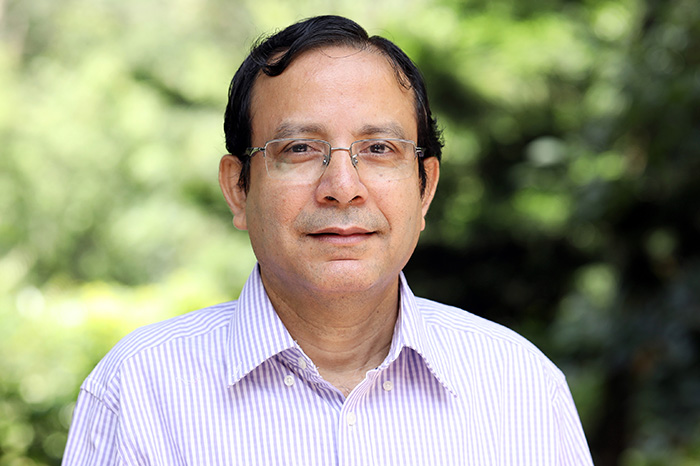
Gopal Mahapatra
Prof. Gopal Mahapatra, Chairperson of the PGPEM at IIM Bangalore, says young professionals who want to keep up with changing trends at their workplaces are looking to learn while they earn, in this article in Deccan Herald.
Venkatesh Panchapagesan
Prof. Venkatesh Panchapagesan, Head, IIMB Real Estate Research Initiative, and N Karthik, from IIMB-RERI, write that a cut in stamp duty instead, would have benefited all property buyers in Karnataka, in this opinion piece in Deccan Herald.

S Ramesh Kumar
Prof. S Ramesh Kumar discusses the collective power of individuals in groups on social media, in this article, in Times of India.

U Dinesh Kumar
Prof. U Dinesh Kumar, faculty in the Decision Sciences area and Chairperson of the Data Centre & Analytics Lab (DCAL) at IIMB, says given the fact that companies are moving towards data driven decision making, it becomes important for every manager to learn the art of visualisation and storytelling using data, in this article in Business Today.

S Ramesh Kumar
Brand Equity is built on every digital touch point that matters to the brand, writes Prof. S Ramesh Kumar, from the Marketing area at IIMB, in this article in Economic Times.
Venkatesh Panchapagesan
Nachiket Kulkarni, Programme Lead at NSRCEL, and Prof. Venkatesh Panchapagesan, Chairperson, NSRCEL at IIMB, write that while governments have talked the talk about saving the planet, it’s time now they walked the talk, in this article in The Hindu.

Rishikesha T Krishnan
The locus of frugal innovation has shifted to the government and startups. While this needs to be sustained, industry must partner as well, write Prof. Rishikesha Krishnan, Director, IIMB, and N Dayasindhu, Founder-CEO, Itihaasa Research and Digital, in this article in The Print.

Srivardhini K Jha, Jitamitra Desai
Professors Srivardhini K Jha and Jitamitra Desai, from IIMB, analyse the advantages and need-gaps in using the case method as a pedagogical tool for management education in India, in The Hindu.

S Ramesh Kumar
The brand manager’s job has become that much more challenging, write Prof. S Ramesh Kumar, from the Marketing area at IIMB, and Sairam Krishnamurthy, in Economic Times.
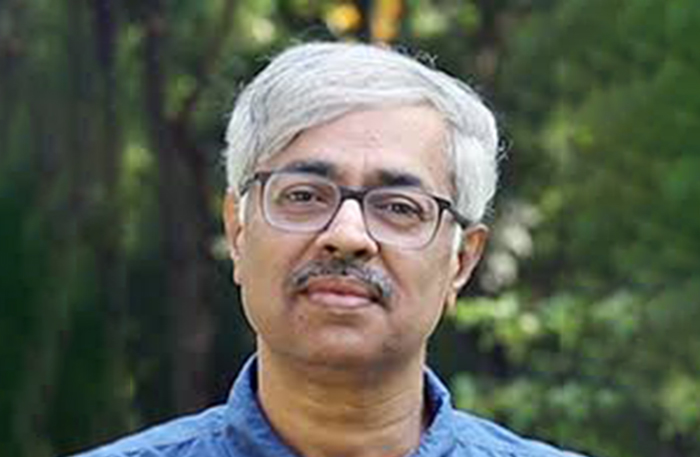
A Damodaran
Now that crypto regulations are imminent in India, it is vital to explore a few key issues that could make a difference to the growth of blockchain technologies in the country, writes Prof. A. Damodaran, faculty in the Economics & Social Sciences area at IIMB, in this article in Forbes India.

Prateek Raj
How do we fix the problem of monstrously bad city governments in India? Genuine city governance reforms are a must, writes Dr Prateek Raj, from the Strategy area at IIMB, in this article in Forbes India.

S Ramesh Kumar
Stereotyping is a part of the brain possibly as a defence mechanism for the primitive man. Are stereotypes bad? Not at all, writes Prof. S Ramesh Kumar, from the Marketing area at IIMB, in this article in Economic Times.

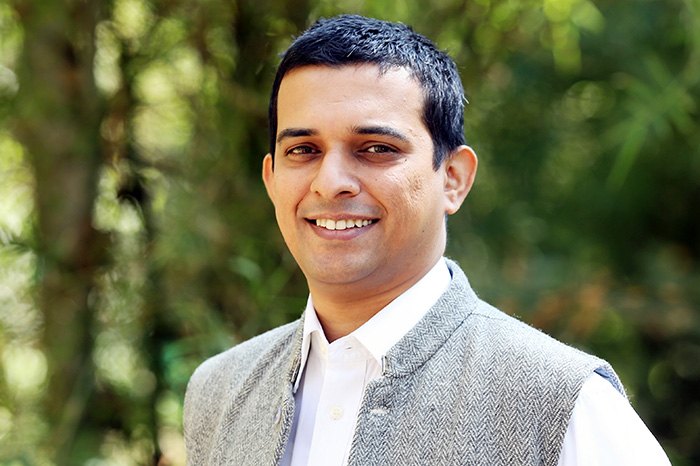
Allen P Ugargol, Arnab Mukherji
Dr. Allen Ugargol and Prof. Arnab Mukerji, from the Centre for Public Policy at IIMB, write that vaccine hesitancy is known to stem from lack of health awareness, from contexts of marginalisation, and social exclusion in this article in The Quint.
Vivek Moorthy
Prof. Vivek Moorthy, faculty in the Economics & Social Sciences area at IIMB, writes on the the perils of natural experiments and randomized controlled trials in Mint.

S Ramesh Kumar
The best example of the relationship between price, value and the product can perhaps be seen in when a consumer buys a car with perceived value comprising of price, features, benefits that include social status as well, write Prof. S Ramesh Kumar, faculty from the Marketing area at IIMB, and Madhurjya Banerjee, in Economic Times.

Ludvig Levasseur
Time plays a crucial role in entrepreneurial tasks such as acquiring resources, anticipating market trends, and projecting cash flows. But an entrepreneur still needs the right perspective to gauge the next opportunity, writes Prof. Ludvig Levasseur, from the Entrepreneurship area at IIMB, in this article in Forbes India.

Rahul Dé
The future of AI technologies in the healthcare sector in India seems bright, as there is a strong need for volume, scale, and accuracy, along with low costs. However, in many situations, patients and families still want the human doctor in the loop - to explain, to connect case histories with symptoms, and to make difficult decisions, write Prof. Rahul De’, faculty in the Information Systems area and MBA students Nitisha Ahuja and Palash Sanjay Kotgirwar in Economic Times.

S Ramesh Kumar
Consciously being aware of the value of autonomy is one of the ways to ensure that the illusions created by the paradox of autonomy is kept at bay, writes Prof. S Ramesh Kumar, faculty in the Marketing area, IIMB, in this article.
MS Sriram
Irrespective of the objectives of demonetisation – the policy actions of the government have led to greater formalisation of the economy... However, this process of formalisation – or adding more people into the formal sector, as has been traditionally understood, is to be interrogated writes Prof. MS Sriram, faculty in the Centre for Public Policy, IIMB, in this article in Financial Express.

Deepti Ganapathy
In the modern world of optics, the portrayal of an image matters the most. Building a favourable opinion of India and its people as a force to reckon with has its benefits, writes Dr Deepti Ganapathy, faculty in the Management Communication area at IIMB, in this article in Forbes India.

S Ramesh Kumar
Essentially, celebrity appeal is to do with aspiration and with social media getting rapidly diffused, the influencer power of celebrities is perhaps on an all-time high, write Professor S Ramesh Kumar, from the Marketing area at IIMB, and Sairam Krishnamurthy, Chief Marketing Officer at More Retail, in Economic Times.
Vivek Moorthy
Prof. Vivek Moorthy, from the Economics & Social Sciences area at IIMB, explains why minimum-wage policy is not just nit-picking on some arcane academic matter, in this opinion piece in LiveMint

S Ramesh Kumar
A combination of lateral thinking combined with the ever-evolving technology will make a brand truly competitive in an environment that is very different from the one during the yesteryears, writes S Ramesh Kumar, Professor of Marketing at IIMB, in this article in Economic Times.
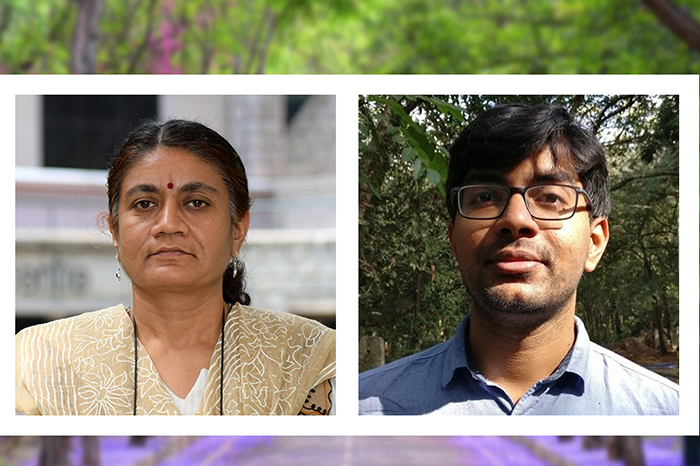
Rajalaxmi Kamath, Vinay Venumuddala Reddy
The Indian IT sector is recruiting engineers purely for their potential to become generic software programmers. This needs to change if Indian IT-BPM sector wants to cater to specialised demands of their customers, write Prof. Rajalaxmi Kamath, from the Centre for Public Policy at IIMB, and Vinay Venumuddala Reddy, doctoral student at IIMB, in Forbes India.

Rahul Dé
In the absence of the availability of cash in circulation, and shortage of cash in banks and ATMs, users migrated to the easiest alternative of using mobile money, visible in the sudden spike digital payments and its subsequent growth post-November 2016, write Prof. Rahul Dé, from the Information Sciences area at IIMB, and Dr Abhipsa Pal. Read more: "Crisis and Mobile Money" in Economic Times.

S Ramesh Kumar
three factors can boost one's resilience: realistic optimism, social support to raise the levels of oxytocin chemical and physical exercise that can increase the brain power, writes Prof. S Ramesh Kumar, faculty in the Marketing area, in this column in Economic Times.

Rishikesha T Krishnan
Our quest for a better GII ranking should help us transform India to build innovation capabilities that produce high-quality products and services at economical India prices that can drive growth and prosperity, write Prof. Rishikesha T Krishnan, Director, IIM Bangalore, and N Dayasindhu, Co-founder and CEO at Itihaasa Research and Digital, in this article in ET Insights.

Prateek Raj
Instead of managing the stakeholders, managers should focus on cooperation, transparency and assistance. This shall help find a middle ground for stakeholders and the community, write Dr. Prateek Raj, from the Strategy area at IIMB, and Dr. Anjul Khadria, at California Institute of Technology, in this article in Forbes India.
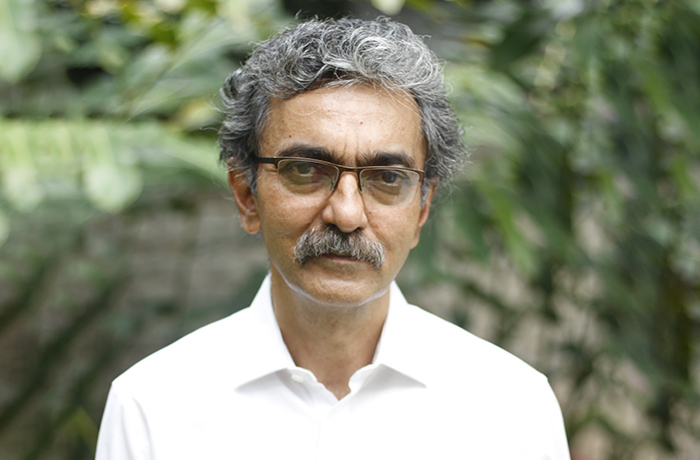
S Ramesh Kumar
Prof. S Ramesh Kumar, from the Marketing area at IIMB, explains how the synergy that is offered by Big, Small and Thick data can be leveraged, in this article in Economic Times.

A Damodaran
Prof. A. Damodaran, from the ESS area at IIMB, explains how the authenticity of blockchain can lend a helping hand in rejuvenating traditional art forms such as Kabuki, Chhau and Kutiyattom and provide hope, in this article in Forbes India.

Allen P Ugargol
The average senior citizen in India is overly dependent on family and finds themselves in a social milieu that is largely indifferent, writes Dr Allen P Ugargol, a member of the Health Policy Group at IIMB and faculty at the Centre for Public Policy, IIMB, in this article in Deccan Herald.

Deepti Ganapathy
Dr Deepti Ganapathy, faculty from the Management Communication area at IIMB, shares three key lessons from the experience of online teaching and learning, in this article in Deccan Herald.

Rahul Dé

S Ramesh Kumar
Making mindfulness a prerequisite for self-reflection may be one of the ways to herald a new inner world, while pursuing a surfeit of opportunities to make a mark in the outer world, writes Prof. S Ramesh Kumar, from the Marketing area at IIMB, in Economic Times.

Deepti Ganapathy
Communication around the spread and containment of Covid-19 has been affected by several stakeholders. The difference in approach has had different impacts on how it shaped public opinion, write Dr Deepti Ganapathy, from the Management Communication area at IIMB, and Daniel C Hallin in Forbes India.
Hema Swaminathan
Universities nurture our youth and need to be free open spaces that encourage critical thinking. Intimidation and other kinds of pressure on the academic community do not augur well for our democracy, writes Prof. Hema Swaminathan, from the Public Policy area at IIMB, in this article in Forbes India.

S Ramesh Kumar
Automaticity is associated with the unconscious influence of the mind with respect to our thoughts, feeling, and behaviour. Prof. S Ramesh Kumar, from the Marketing area at IIMB, explores its implications on marketing and branding in this article in Economic Times.
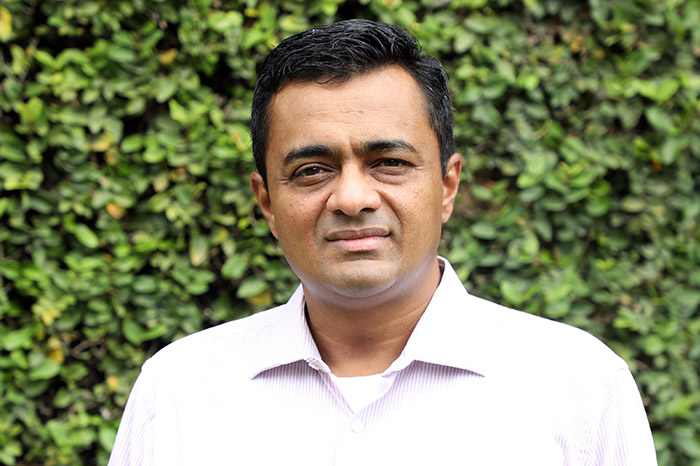
Anshuman Tripathy
Prof. Anshuman Tripathy, from the Production & Operations Management area at IIMB, and Sudhir M Chadha explain how project managers can choose between the trusted waterfall method and the trendy agility model in this article in Forbes India.
Chetan Subramanian
India's central bank is following a Quantitative Easing programme of its own device called GSAP 1.0. Saumya Gupta, Megha Malpani and Prof. Chetan Subramanian, from the Economics & Social Sciences area at IIMB, explain the nuances of the technique in this article in Forbes India.
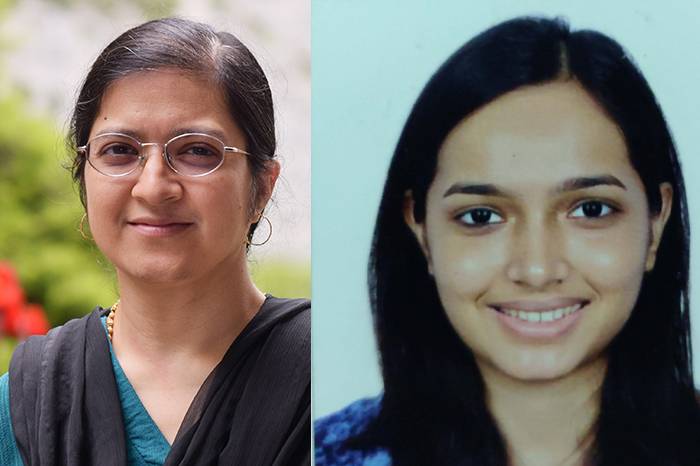
Rupa Chanda, Neha Betai
While the dominance of global value chains (GVCs) in production processes is a widely accepted fact, the impact of participation in GVCs is still being explored. Using data from a sample of 100 nations for 1999-2018, Prof. Rupa Chanda, from the Economics & Social Sciences area at IIMB, and Neha Betai, from IIMB, examine the improvement in productivity brought about by GVC participation, and its role in the upgradation of intermediate exports – the main channel through which countries participate in GVCs, in this article in Ideas for India (I4I).
MS Sriram
Audio and ebooks have changed the dynamics of the book publishing value chain—with the possibility of doing more with less or the same real estate and working capital, and giving new writers a chance to brush shoulders with bestsellers. What does that mean for booksellers, writers, readers, wonders Prof. MS Sriram in this column in Forbes India.


Allen P Ugargol, Arnab Mukherji
Overcoming disenchantment among workers is crucial for functional response system, write Prof. Allen Ugargol and Prof. Arnab Mukherji, from the Public Policy area, in this article in Deccan Herald

Deepti Ganapathy
Dr Deepti Ganapathy, faculty in the Management Communications area, talks about the role of brands in nurturing young sportspersons in this article in Deccan Herald.

Rishikesha T Krishnan
Until a few years ago, global value chains (GVCs) were assumed to be an inevitable part of large-scale businesses with an international footprint. Protectionist tendencies, driven by domestic employment concerns and the Covid-19 pandemic, have raised fundamental questions about the future trajectory of GVCs. How should Indian companies look at GVCs while planning for the future? Prof. Rishikesha T Krishnan, Director and Professor of Strategy, IIMB, and N Dayasindhu, Co-founder and CEO at Itihaasa Research and Digital, discuss the issue in this article in Forbes India.

S Ramesh Kumar
Neuroplasticity, a scientific advancement, has shown that even as we age, contrary to what was earlier believed, it is possible to develop new pathways, through new neurons in the brain, to rewire it. Read more by Prof. S Ramesh Kumar, from the Marketing area, in this short opinion article in Economic Times.
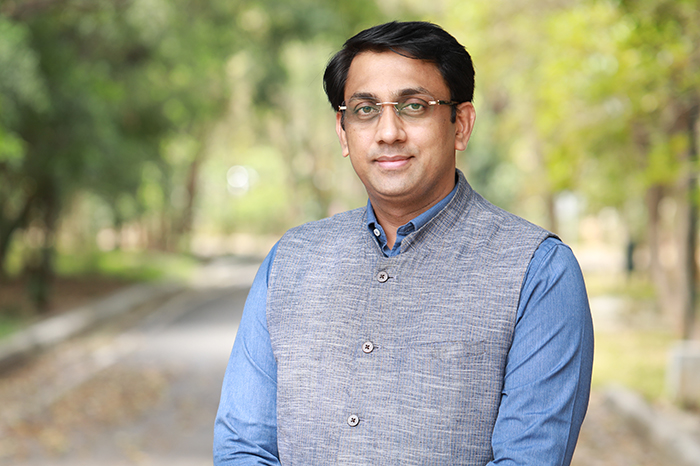
Allen P Ugargol
The mental health of the frontline healthcare workers needs to be addressed as a priority and given equal weightage along with other strategies to manage and control the disease and the pandemic at large, writes Prof. Allen P Ugargol, from the Centre of Public Policy, in Forbes India.

S Ramesh Kumar
As consumers become more demanding in a post covid era, brands will need to go beyond visual positioning and promises, writes Prof. S Ramesh Kumar, from the Marketing area, in this article in Economic Times.

U Dinesh Kumar
Many skills that exist today may not be needed soon. While jobs are lost in traditional IT, they are being created by new age technologies, which means jobs in the future will demand completely different skill sets mostly driven by AI and ML, Industry 4.0, digital transformation, augmented reality-virtual reality, blockchain, Internet of Things, writes Prof. U. Dinesh Kumar, Chairperson, Data Centre and Analytics Lab, IIM Bangalore, in this article in Express Computer.

Kanchan Mukherjee
Water management policies thus far have been about augmenting the supply of water rather than to lower demand. The resource is scarce and now we need to go beyond technological solutions, write Prof. Kanchan Mukherjee and Vivek in this thought leadership article in Forbes India.

Anshuman Tripathy
The time has come for India to incentivise local industries to make indigenous semiconductor chips. Here’s how PLIs and SLIs will help establish a new industry and meet the ever-increasing demand, write Prof. Anshuman Tripathy, faculty from the Production & Operations Management area, and Hariram Thirukaruvagur Ramesh.

S Ramesh Kumar
In this article in Economic Times, Professor S Ramesh Kumar explains why ignorance is not bliss.

Sourav Mukherji
HR professionals need to be lead users of technology so that they understand the advantages and challenges of digital transformations that employees need to go through, writes Prof. Sourav Mukherji, faculty from the OB&HRM area, in this article in Economic Times HR World.

S Ramesh Kumar
Consumers experience the brand not only in terms of its attributes and benefits but also in terms of its relationship, writes Professor S Ramesh Kumar, from the Marketing area, in this article in ET Brand Equity.

Prateek Raj
Prof. Prateek Raj, faculty from the Strategy area at IIM Bangalore, and Dr. Anjul Khadria, an Indian biochemical scientist at the California Institute of Technology (Caltech), discuss the lessons India can learn from the USA’s dramatic COVID-19 turnaround, in this article in Forbes India.

S Ramesh Kumar
Being aware of the intent to gloat and acceptance of the feeling whenever it surfaces, is one of the prerequisites in one’s arduous journey towards detachment in a world that is full of sensory gratification, writes Professor S Ramesh Kumar, in this article in Economic Times.
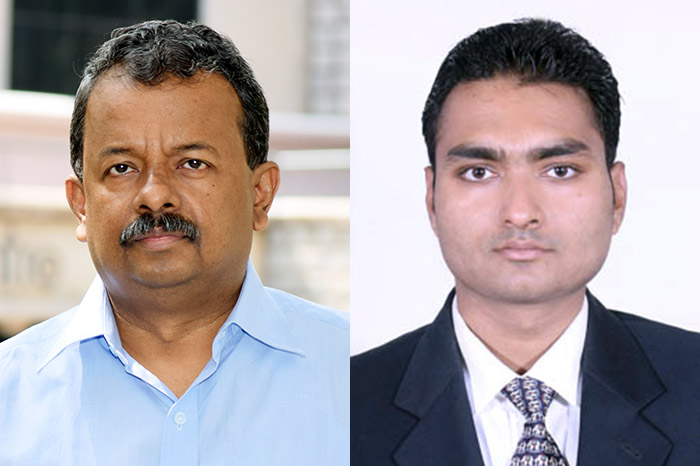
Gopal Naik
Prof. Gopal Naik, faculty from the Economics and Social Sciences, and Manu Bansal, a doctoral scholar at IIM Bangalore, argue that enforcing additional constraints on the futures market alone will only affect futures trading without any benefit to any other stakeholder, including consumers, in this article in The Print.

Deepti Ganapathy
Communication, source tracking and course corrections— Dr Deepti Ganapathy, from the Management Communication area at IIMB, and Dr Sampath Rao define and describe the three-step protocol to effectively handle a crisis in this article in Forbes India.

Rahul Dé
As we increase our use of AI in our everyday lives and in business functions, the idea of agency and responsibility assignment will have to be brought into focus, write Prof. Rahul Dé and Sai Dattathrani on the AI Policy Labs blog, a UK think tank.

Deepti Ganapathy
Dr Deepti Ganapathy, faculty, Management Communication area, IIMB, and Dr Sampath Chandra Prasad Rao explain that there can be many sources of contamination in an already-stressed system and therefore communicating proper protocols and ensuring these directives are understood and disseminated effectively will show measurable outcomes, in this article in Express Healthcare.
Vasanthi Srinivasan
In this special session, hosted by Express Computer, Prof. Vasanthi Srinivasan says digital education has to be accessible, affordable and inclusive for all; democratising the learning should be a ‘social process’ and India should invest in social learning communities.

M Jayadev
Will recent policy reforms and trends provide signs of hope for the Indian financial sector, asks Prof. M Jayadev, in this article in International Banker.
Mukta Kulkarni
Prof. Mukta Kulkarni, Mphasis Chair on Accessibility & Inclusion at IIMB, writes that inclusion as a business case also plays out at the level of the individual who, through employment, contributes to the broader economy, in this article in Deccan Herald.

Rishikesha T Krishnan
The first Covid-19 vaccine came in record time but it’s easy to forget the decades of research into mRNA, which underpins the Pfizer-BioNTech vaccine, write Prof. Rishikesha T Krishnan, Director and Professor of Strategy at IIM Bangalore, and N Dayasindhu, Co-founder and CEO at itihaasa Research and Digital, in this article in Forbes India.
Vivek Moorthy
Prof. Vivek Moorthy, from the Economics & Social Sciences area at IIMB, writes that some forex reserves must be transferred to states for COVID expenses in this article in Mint.

A Damodaran
Apart from the policy lassitude induced by COVID 19, the other potent (but less noticed factor) standing in the way realising the Paris Climate Targets in the coming years is the phenomenon of overpriced global commodity markets, writes Prof. A. Damodaran in Forbes India.
Vivek Moorthy
Prof. Vivek Moorthy, from the Economics and Social Sciences area at IIMB, writes that just the foreign exchange reserves last year were enough to vaccinate all of India, in this opinion article in Mint.

Sourav Mukherji
As civilians step up to help others, Prof. Sourav Mukherji, faculty from the OBHRM area at IIMB, brings lessons from endurance athletes and prisoners of war on how doing good deeds can help us cope with the devastating crisis unfolding around us, in this Thought Leadership article, in Forbes India.

Srivardhini K Jha
In this article in Entrepreneur India, Prof. Srivardhini Jha, faculty in the Strategy area at IIMB, explains how an entrepreneurial mindset helps different people in different ways. For some, it provides the foundation and confidence to start their own business venture. For others, it equips them to excel in their corporate jobs. An entrepreneurial mindset is for everyone. It is an essential life skill in today’s highly uncertain business world.

S Ramesh Kumar
As we move up the economic spectrum and become used to our ‘buying power’, we may develop unreasonable expectations from others. Should we lower our expectations, wonders Professor S Ramesh Kumar, from the Marketing area, in this article in Economic Times.

Ritwik Banerjee
Behaviourally informed health communication strategies can help improve Covid compliance, writes Prof. Ritwik Banerjee, faculty from the Economics and Social Sciences area at IIMB, in this opinion piece, in Economic Times.

S Ramesh Kumar
The challenge for brand managers today is not just to create loyalty but to also sustain loyalty in a digital world, writes Prof. S Ramesh Kumar, faculty from the Marketing area, in Economic Times.

Rishikesha T Krishnan
In this article in The Hindu, Professor Rishikesha T Krishnan explains how IIM Bangalore’s policies work at providing equitable opportunities to all.

Amar Sapra
Professor Amar Sapra, from the Production and Operations Management area, and PGP students Ronak Bose and Tushar Dhande argue that to provide customers with a seamless and glitch-free experience of shopping across platforms and channels, a more integrated approach is required, in this article in Forbes India.
Vivek Moorthy
In this article in Mint, Professor Vivek Moorthy, from the Economics & Social Sciences area at IIMB, writes that “fostering an awareness of our uncritical craze for foreign books will boost made-in-India content”.

Rishikesha T Krishnan
Devoting an entire chapter to innovation, the recently released Economic Survey 2020-21 has called upon Indian businesses to ramp up R&D investments to achieve the country’s aspiration to emerge as the third-largest economy. But, in doing this, it is important for Indian companies to remember that in the last two decades, companies and institutions the world over have moved from bespoke to collaborative innovation models, write IIMB Director Prof. Rishikesha T Krishnan and Dayasindhu N, CEO of Ithihaasa Research & Digital, in Deccan Herald.
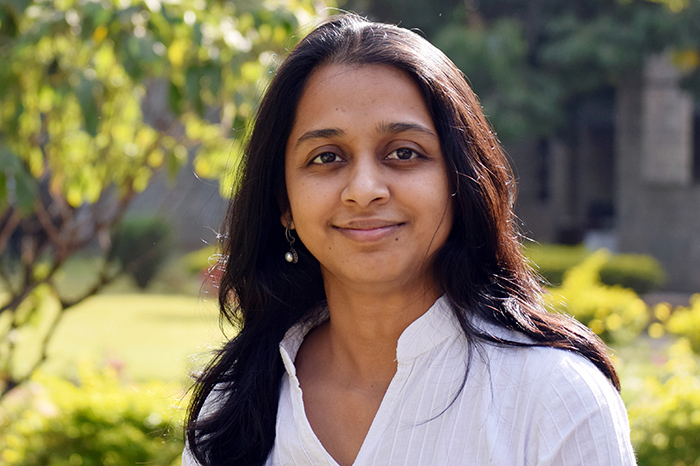
Shabana Mitra
The emphasis on sons in dynasties, including family businesses, ensures that even now societies prefer sons carry their traditions forward, and the girl child remains neglected, writes Dr Shabana Mitra, faculty from the Centre of Public Policy at IIM Bangalore, in Forbes India.

Rishikesha T Krishnan
In this Guest Column in Business India, Professor Rishikesha T Krishnan, Director, IIMB, writes that India’s management institutions move away from competitiveness to leadership at the world level.
MS Sriram

S Ramesh Kumar
Brand positioning, segmentation and advertising may be the basics of marketing but given the changes in the environment (with or without COVID), managers need to be alert with respect to a brand swiftness, write Prof. S Ramesh Kumar, from the Marketing area, and S Swaminathan in Economic Times.
G Ramesh

Rahul Dé
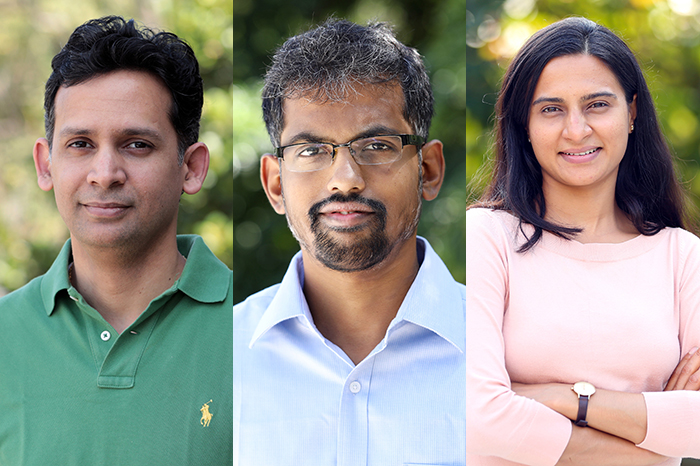
Kunal Dasgupta, Srinivasan Murali, Vidhya Soundararajan
As businesses struggled to stay afloat, the government announced a number of measures targeted towards the so-called Micro, Small and Medium Enterprises (MSMEs). Many of these measures, part of the Atmanirbhar Bharat Abhiyan package, are aimed at easing financial constraints faced by businesses, write Professors Kunal Dasgupta, Srinivasan Murali, and Vidhya Soundararajan, in Hindustan Times.
Malay Bhattacharya
Public expenditure money should be used for improving overall medical infrastructure and reducing overall death rate in the country, writes Prof. Malay Bhattacharyya, of IIMB, in this opinion piece in Forbes India.

Rishikesha T Krishnan
As far as management education is concerned, this new normal will be reflected in a sharper segmentation of the market and programmes more specifically designed and targeted to these market segments. This will reinforce a trend that started before Covid-19,” writes IIMB Director RT Krishnan in this article in BusinessWorld.

Amar Sapra
In this article in Forbes India, Prof. Amar Sapra, from the Production and Operations Management area at IIMB, explains the three principles of capacity management that will be useful to any government agency planning for and implementing the vaccination drive.

S Ramesh Kumar
In this article in Economic Times, Prof. S Ramesh Kumar, from the Marketing area, explains the need to be conscious of one’s thoughts, both in terms of quality and magnitude.
Vivek Moorthy
His goals led to inflation policy talk but the big Argentine lesson is about how key officials are appointed, writes Prof. Vivek Moorthy of IIMB, in LiveMint.

G Shainesh
While many harnessed digital technologies to cope with these disruptions, COVID accelerated the adoption of digital by consumers as well as businesses and governments, writes Prof. G. Shainesh of IIMB in ET BrandEquity.

J Ramachandran
The ongoing dispute between Tata Sons and the Shapoorji Pallonji Group is affording the Supreme Court of India a very rich opportunity to opine on some of the fundamental questions related to corporate governance. The challenge before the Supreme Court now is to decide if the decision-making powers of the board of directors are indeed an unalterable basic foundation of a company or if shareholders are the ultimate decision-making authority who may choose to delegate decision making to agents as they see fit. Which model of corporate governance will the Supreme Court adopt, ask J Ramachandran, Professor of Strategy and Savithran Ramesh, Research Associate at IIMB, and KS Manikandan, Associate Professor of Strategy at IIM Tiruchirappalli, in this article in Bloomberg Quint.

Prateek Raj
A common Tamil identity laid the ground for socio-economic growth. It must now promote market-based entities, write IIMB’s Prateek Raj and Prassanna Venkatesh B, in Hindu Business Line.
MS Sriram
Reversing India’s historically open attitude towards aid will hit welfare in areas the state cannot easily reach, writes Prof. MS Sriram, Chairperson of the Centre for Public Policy at IIMB, in this article in The India Forum.

Trilochan Sastry
In this Opinion article in Economic Times, Prof. Trilochan Sastry, from IIMB, writes that replacing exploitative local middlemen with big corporates hardly benefits the farmer in any way.
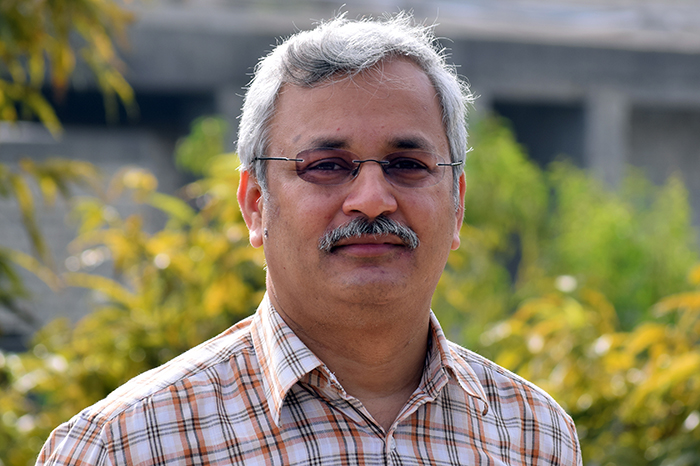
Suresh Bhagavatula
Though COVID-19 has severely impacted education, a recent study shows that many creative solutions have also emerged, write Prof. Suresh Bhagavatula of IIMB and Shubh Samtani, in this article in Hindu Business Line.
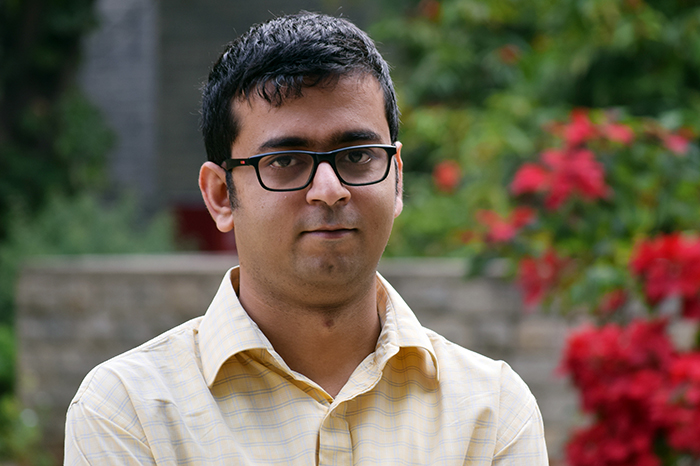
Prithwiraj Mukherjee
Dr. Prithwiraj Mukherjee, from the Marketing area at IIMB, writes that as India reels under the impact of this disease and its associated healthcare challenges, businesses and the government must collaborate to revive the limping economy.

Srivardhini K Jha
In this article in Entrepreneur India, Prof. Srivardhini K Jha, Chair, Entrepreneurship area at IIMB, lists ways in which entrepreneurs can enhance the excitement of embarking on a new journey while making a difference in the world.

Rishikesha T Krishnan
As pandemics place curbs on human activities, and disrupt supply chains and geo-political shifts (such as the rift between China and the US) and new trade agreements change the global business landscape, business leaders need these seven vital skills, writes IIMB Director and Professor of Strategy Rishikesha T Krishnan in Hindu Business Line on Campus.

Ludvig Levasseur
In this article in Forbes India, Prof. Ludvig Levasseur writes that entrepreneurs need to keep their level of energy, commitment, discipline, and passion high enough to be able to go through upheavals in this challenging Covid-19 business climate.

Rahul Dé
As the threat of COVID-19 infection continues, Prof. Rahul De, J Chris Macman and Priyanka Deverakonda propose two possible approaches to generating a congestion index and hope that some entrepreneurs or government agencies will take up one of these solutions. Read more in Express Healthcare
Vivek Moorthy
A steep rise in personal loans over the festive season, coupled with stagnant credit to industry, portends a surge in defaults, writes Prof. Vivek Moorthy from the Economics and Social Sciences area at IIMB, in LiveMint.

Rahul Dé
Hacking of BigBasket’s servers is not just one firm’s problem to solve, it is up to all of us to take active measures in protecting ourselves, and those we interact with, through the technology we use, write Prof. Rahul De', Kriti Nagori, and Divyansh Bengani of IIMB in Economic Times

S Ramesh Kumar
There is a redefinition of the term “value” and little known or emerging young brands or new offerings coming to life with the blitzkrieg of online commerce in both urban and semi-urban markets, write Prof. S. Ramesh Kumar, from the Marketing area, and Dr S Swaminathan in Economic Times.
Malay Bhattacharya
In our country, we have fool-proof admission tests like JEE and CAT for higher education, UPSC for civil service, and recruitment tests for military education and training. It should not be difficult for us to develop such a selection and testing system for politicians, writes Prof. Malay Bhattacharya, from the Decision Sciences area at IIM Bangalore, in Deccan Herald.

Shabana Mitra
Data shows that despite increased work, workers received fewer wages in the run-up to elections, writes Prof. Shabana Mitra, faculty from the Centre for Public Policy at IIMB, in The Wire.

S Ramesh Kumar
Prof. S. Ramesh Kumar, from the Marketing area, and S. Swaminathan, explain why embedding marketing experience across channels and consumer segments will no longer be a compelling proposition but a necessity, in this article in The Economic Times.
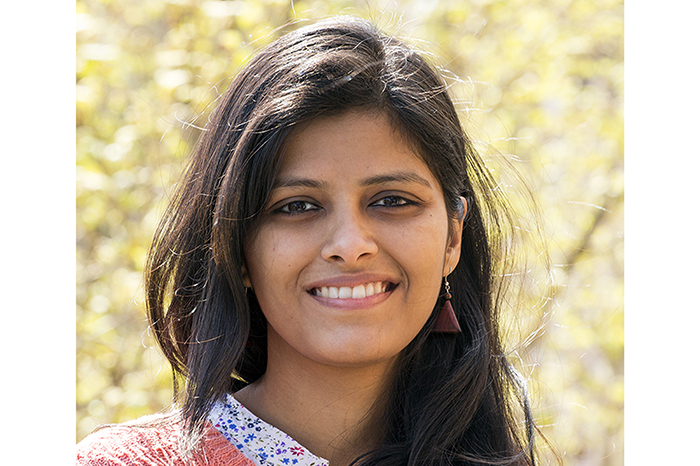
Nilam Kaushik
It would be worthwhile expending efforts towards engendering sustainable open-collaboration communities around specific problem areas that harness the diverse and novel perspectives and hands-on expertise of individuals from a variety of domains, writes Prof. Nilam Kaushik, from the Strategy area at IIMB, in Forbes India.

Srivardhini K Jha
Prof. Srivardhini Jha, Chair, Entrepreneurship area at IIMB, offers a few suggestions that can give students a head start in their entrepreneurial journey, in this article in Business World.
G. Sabarinathan
Would the story of other unicorns be similar narratives of unbridled ambition, pumped by the hubris of VCs, their aggressive “post financing value addition” and egotistic, poorly, inadequately thought through moves by their founders, wonders Prof. G. Sabarinathan, from the Finance area, in this offbeat book review of Mihir Dalal’s recent book, ‘Big Billion Startup’ in Forbes India.

Rahul Dé
DevOps is a growing practise and firms are finding ways to manage their projects in as smooth a manner as feasible. There is considerable demand on software developers to learn new tools, which requires some effort, but the payoff is smoother operations and better quality, write Prof. Rahul Dé, Tirtha Tushar Panda and ShreyashTade, from IIMB, in DQIndia.

RT Krishnan, Director, IIMB
What are the long-term prospects of management education in India? Prof. Rishikesha T Krishnan, Professor of Strategy and Director, IIMB, offers his opinion in The Week.

Prateek Raj
Has Gandhi been relegated to the shadows because his ideas seem no longer relevant to the world we live in, ask Prof. Prateek Raj and Prof. Kamini Gupta in Forbes India.
